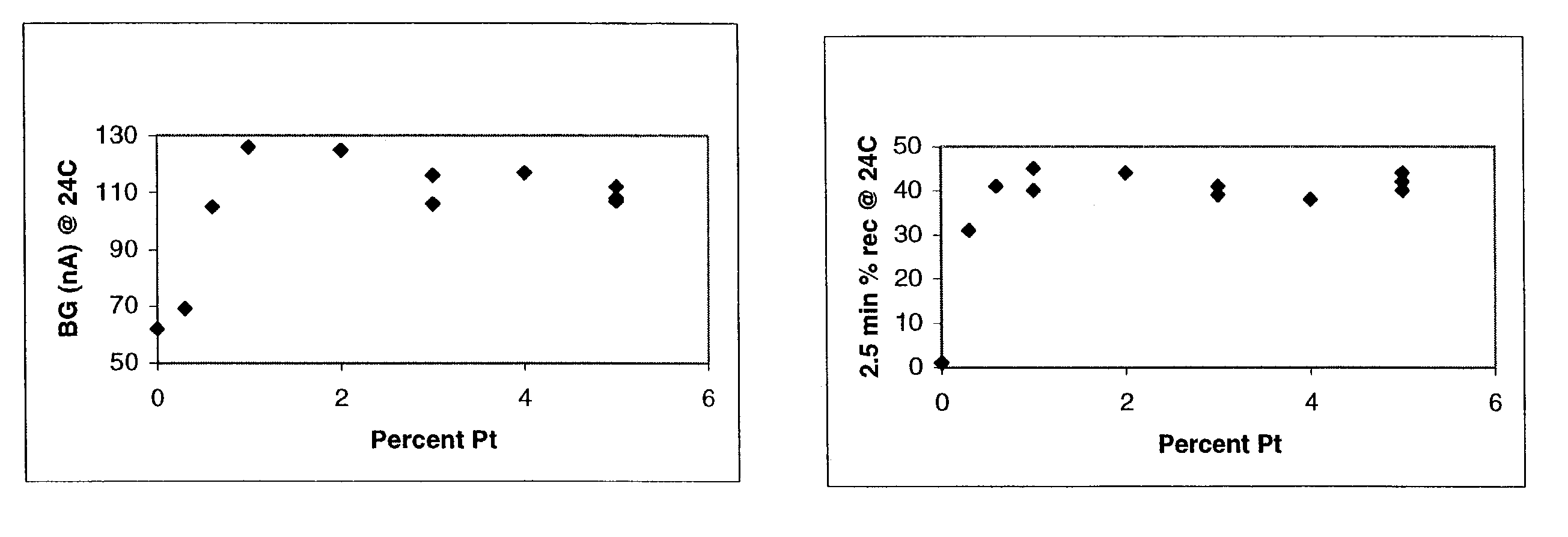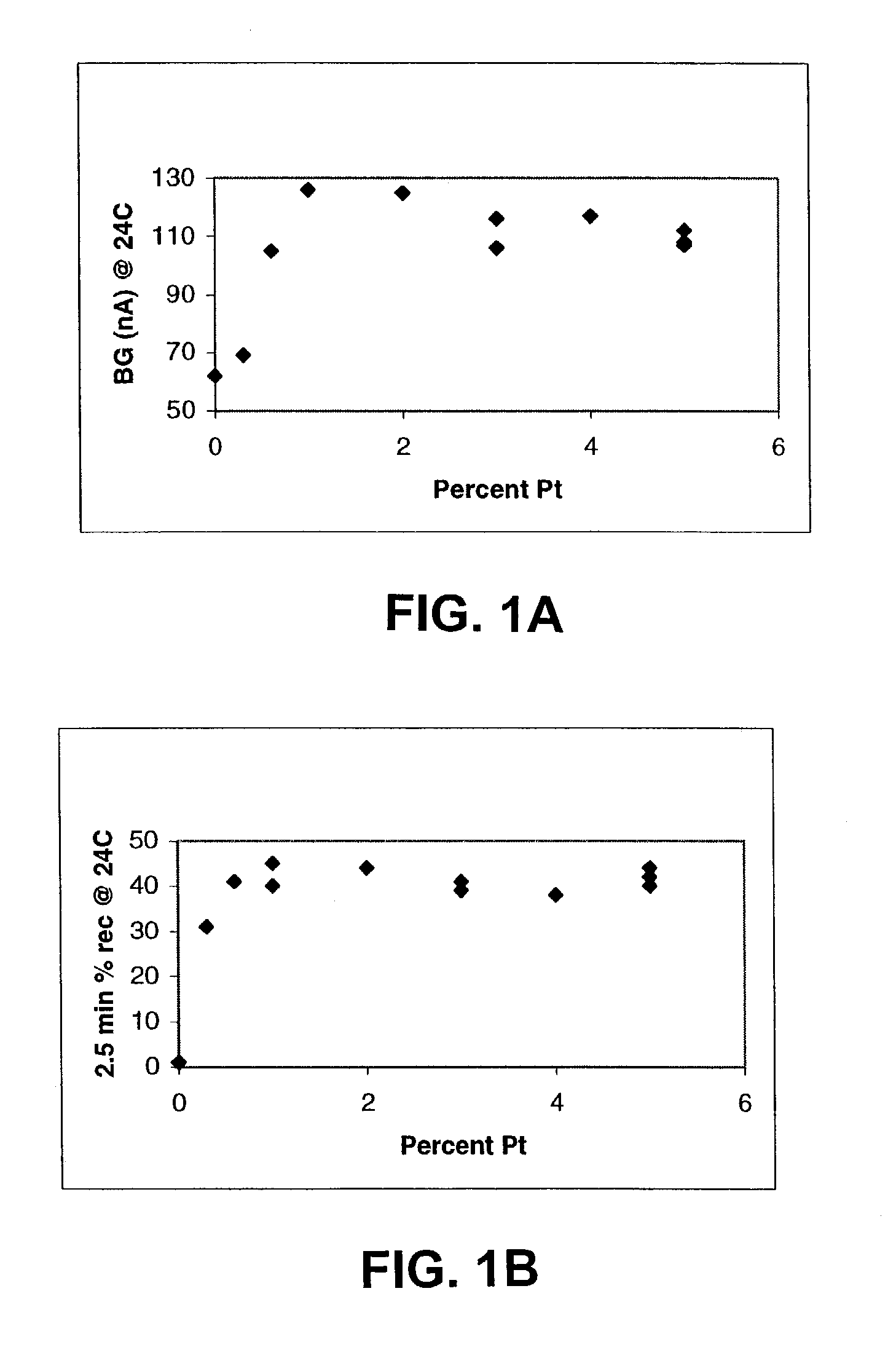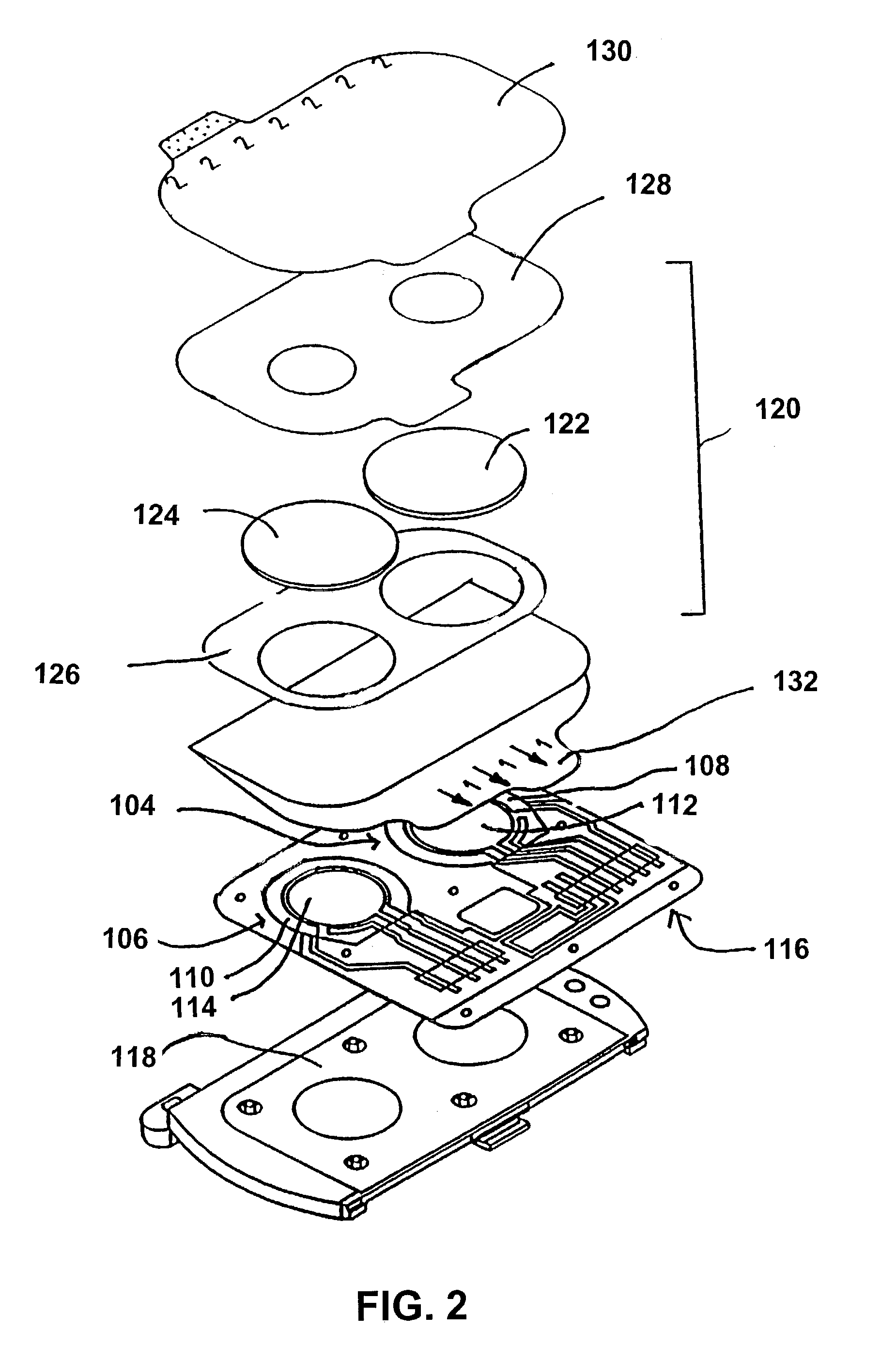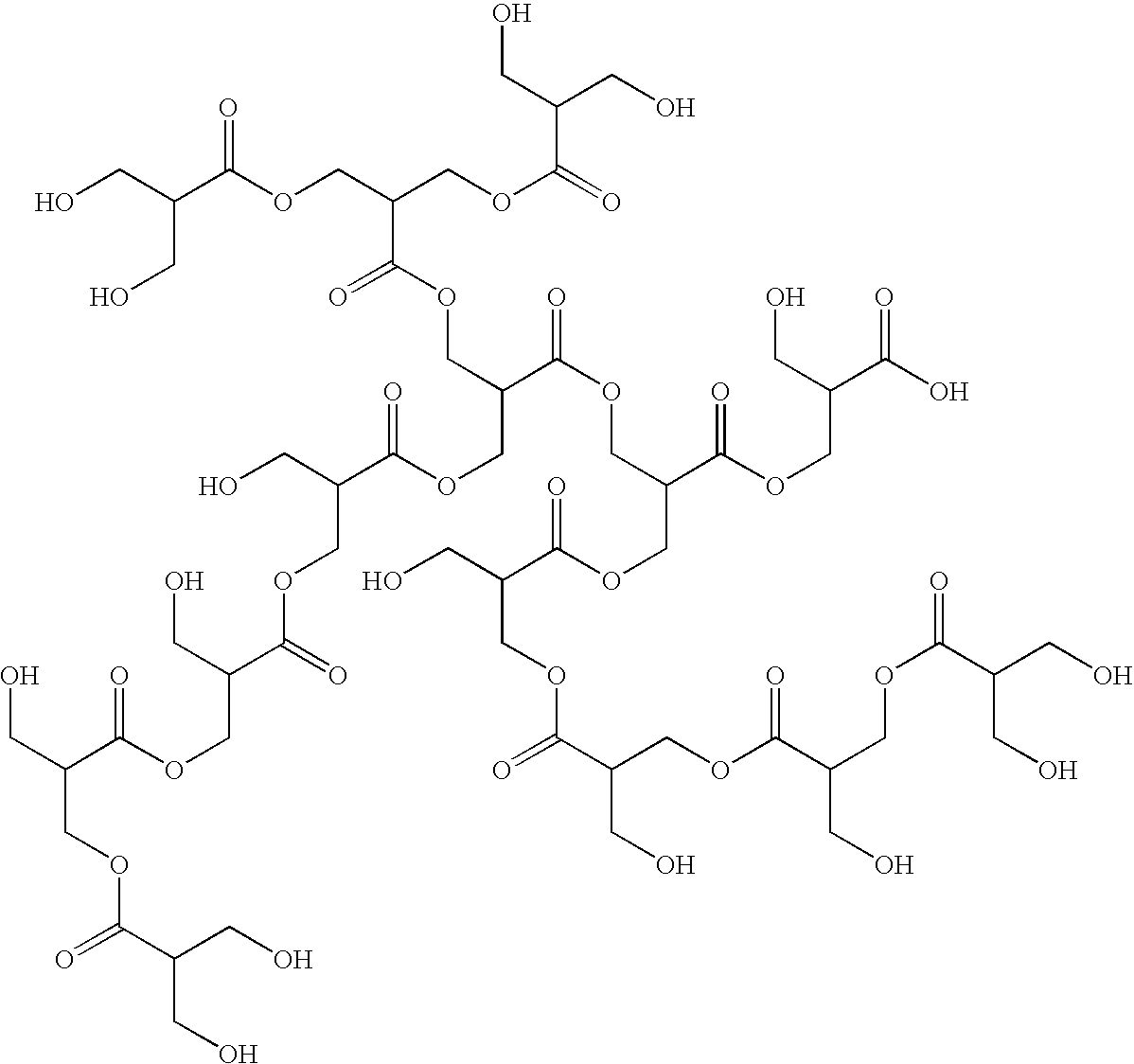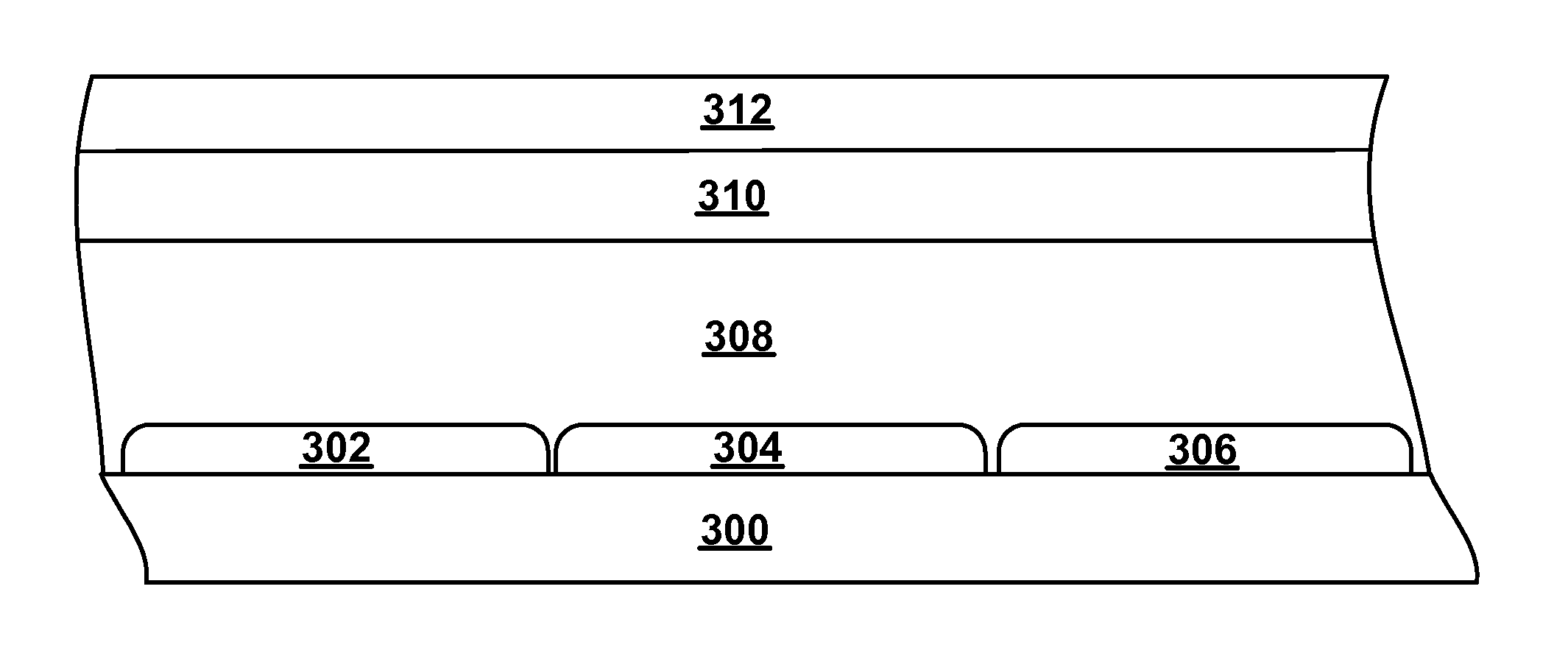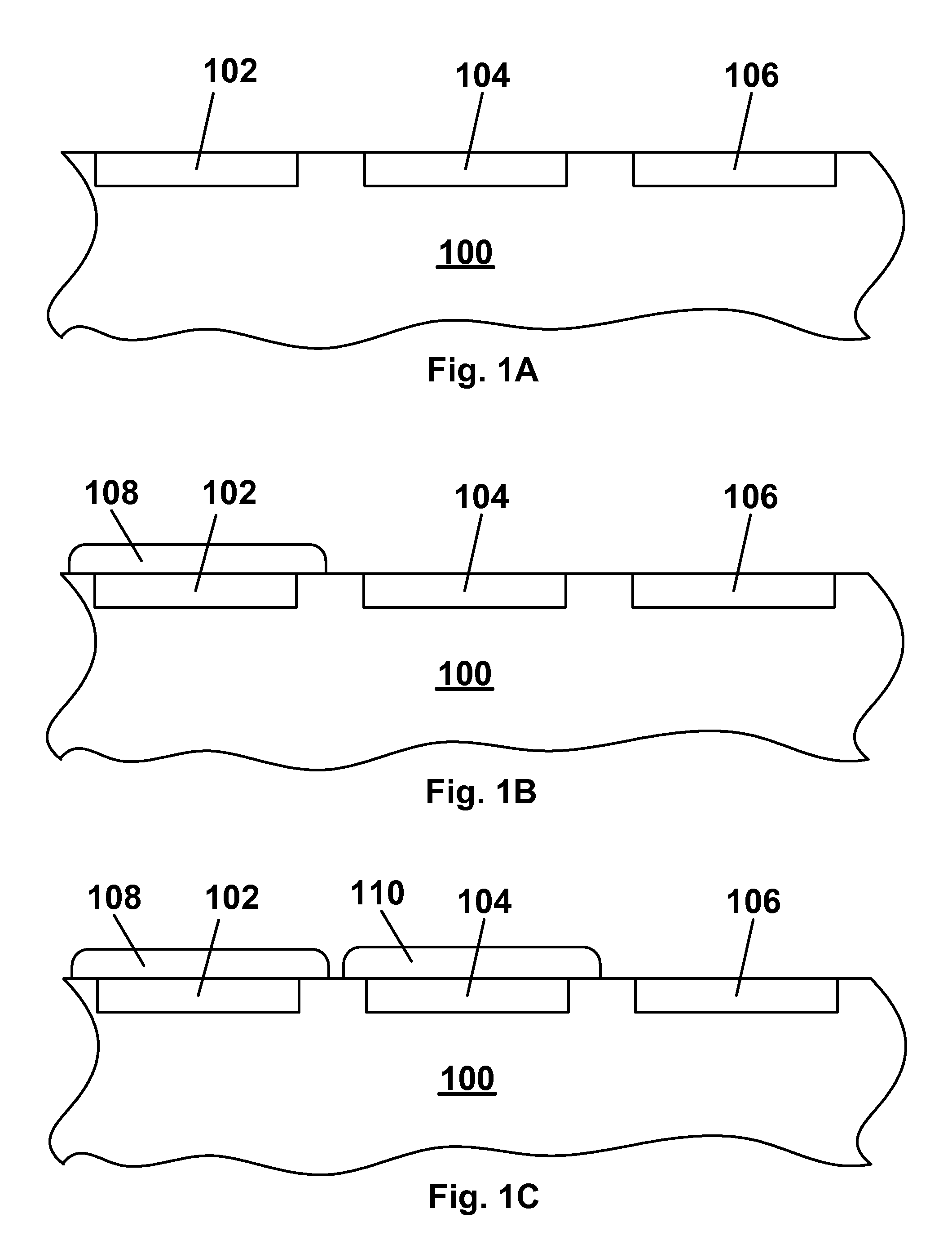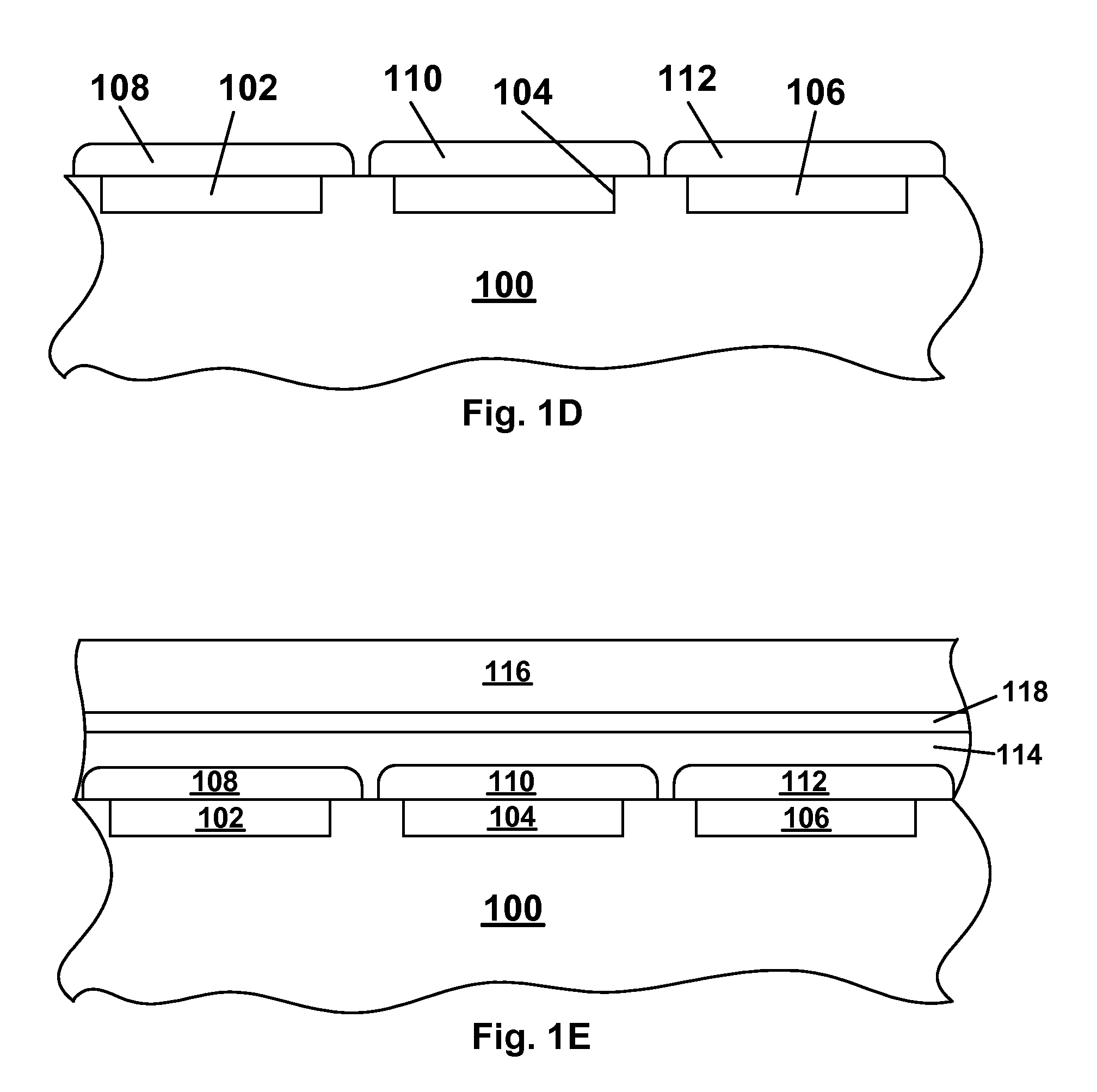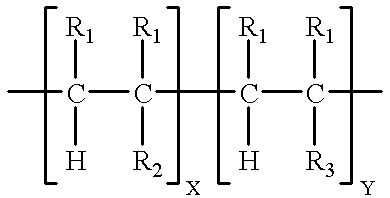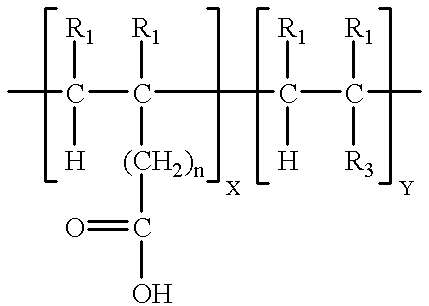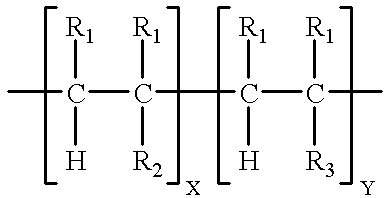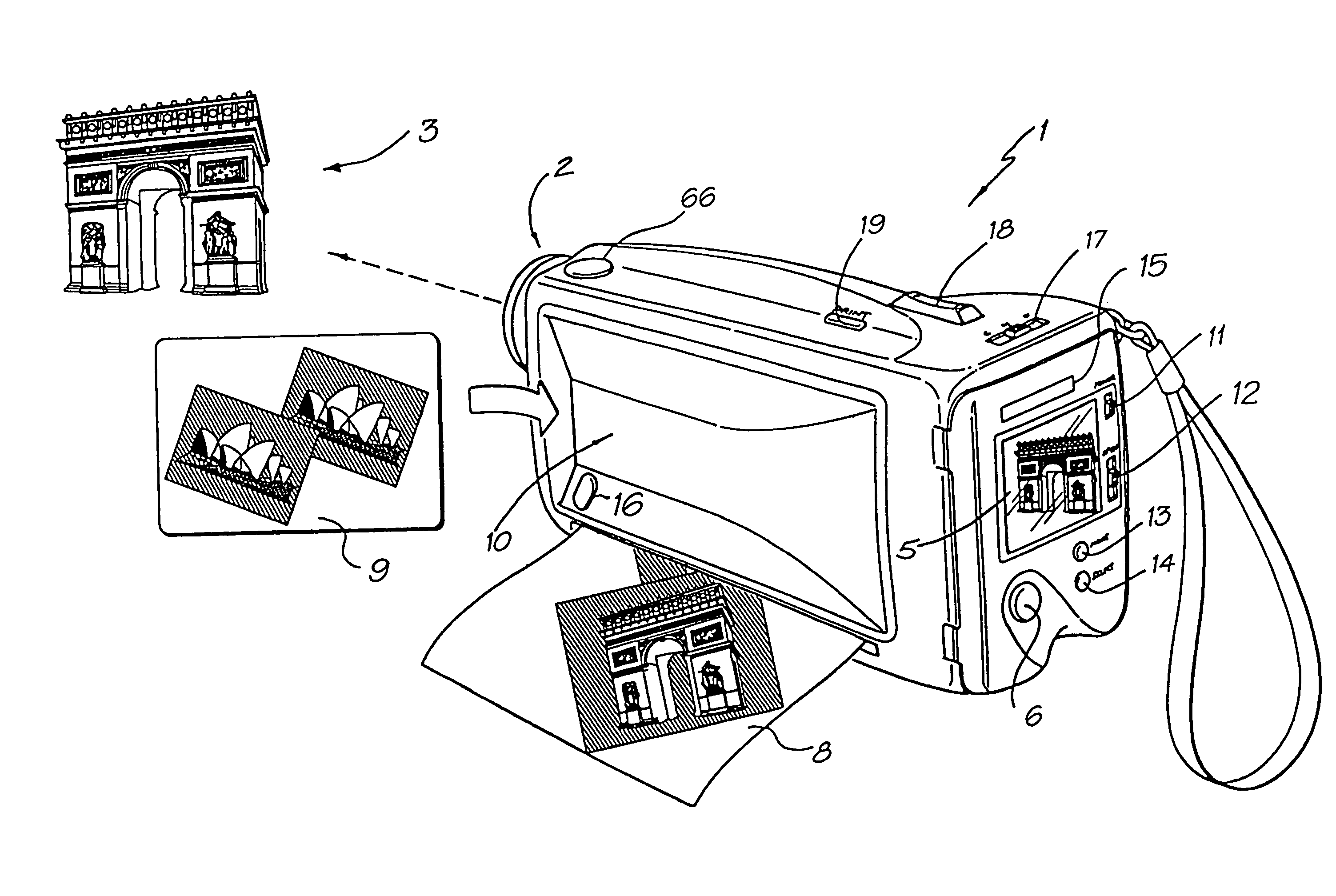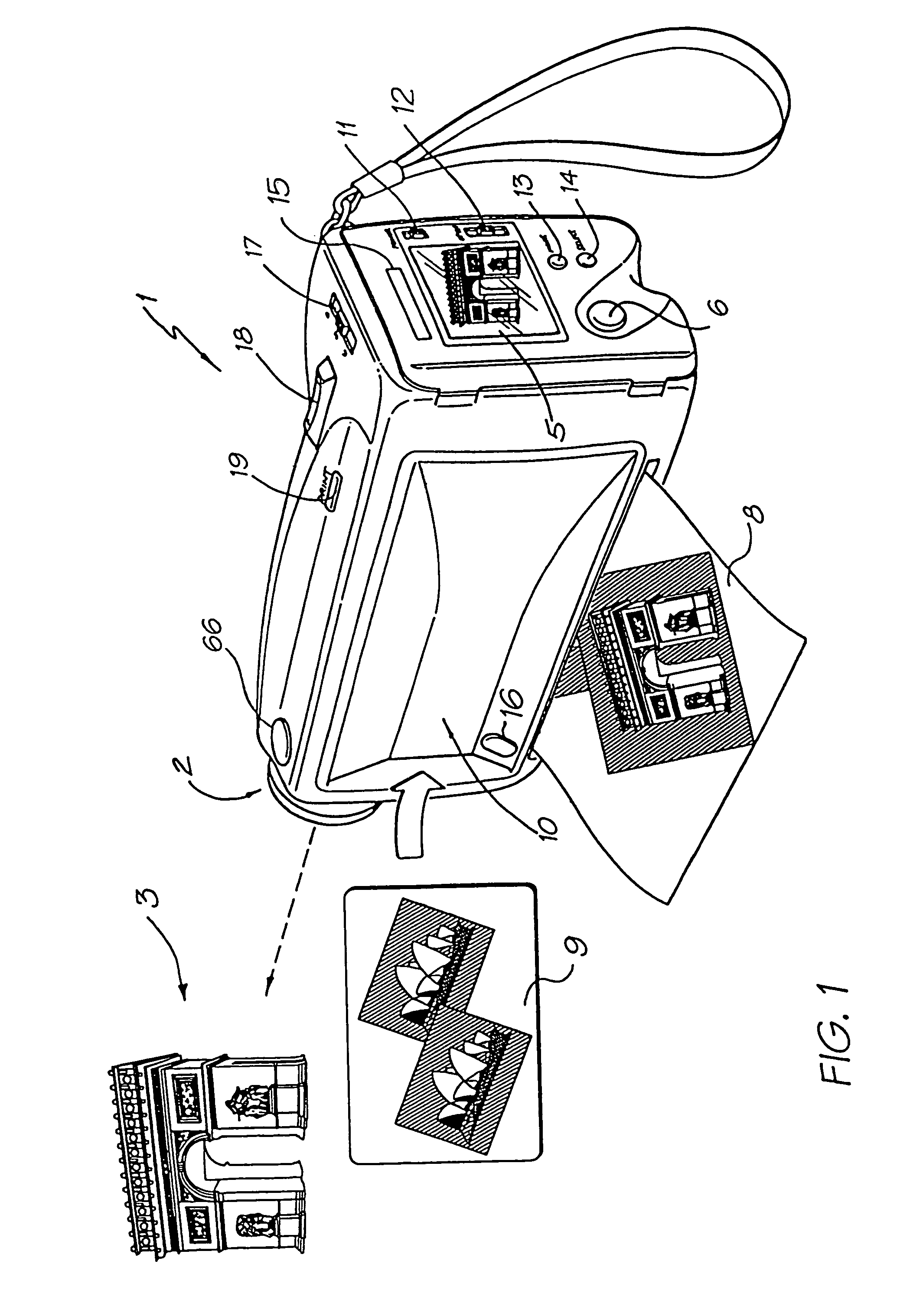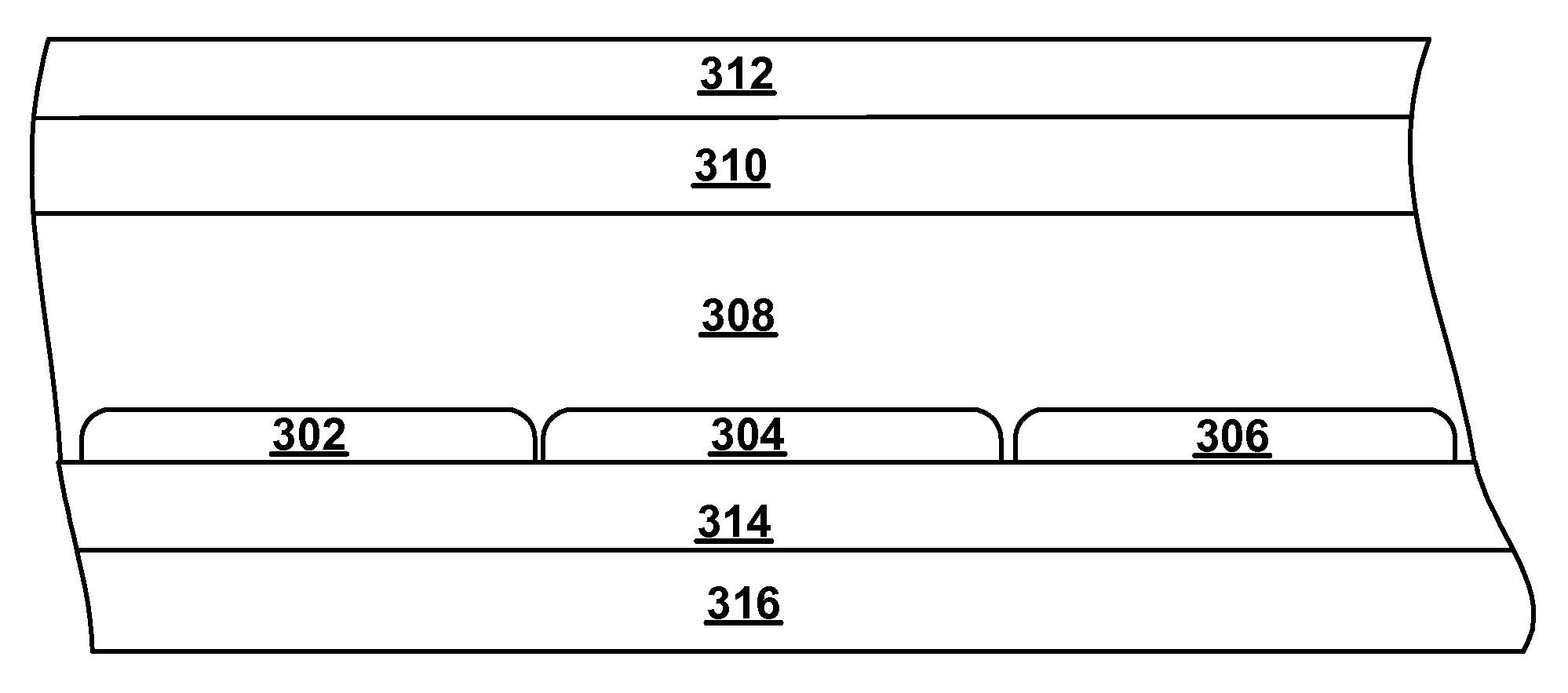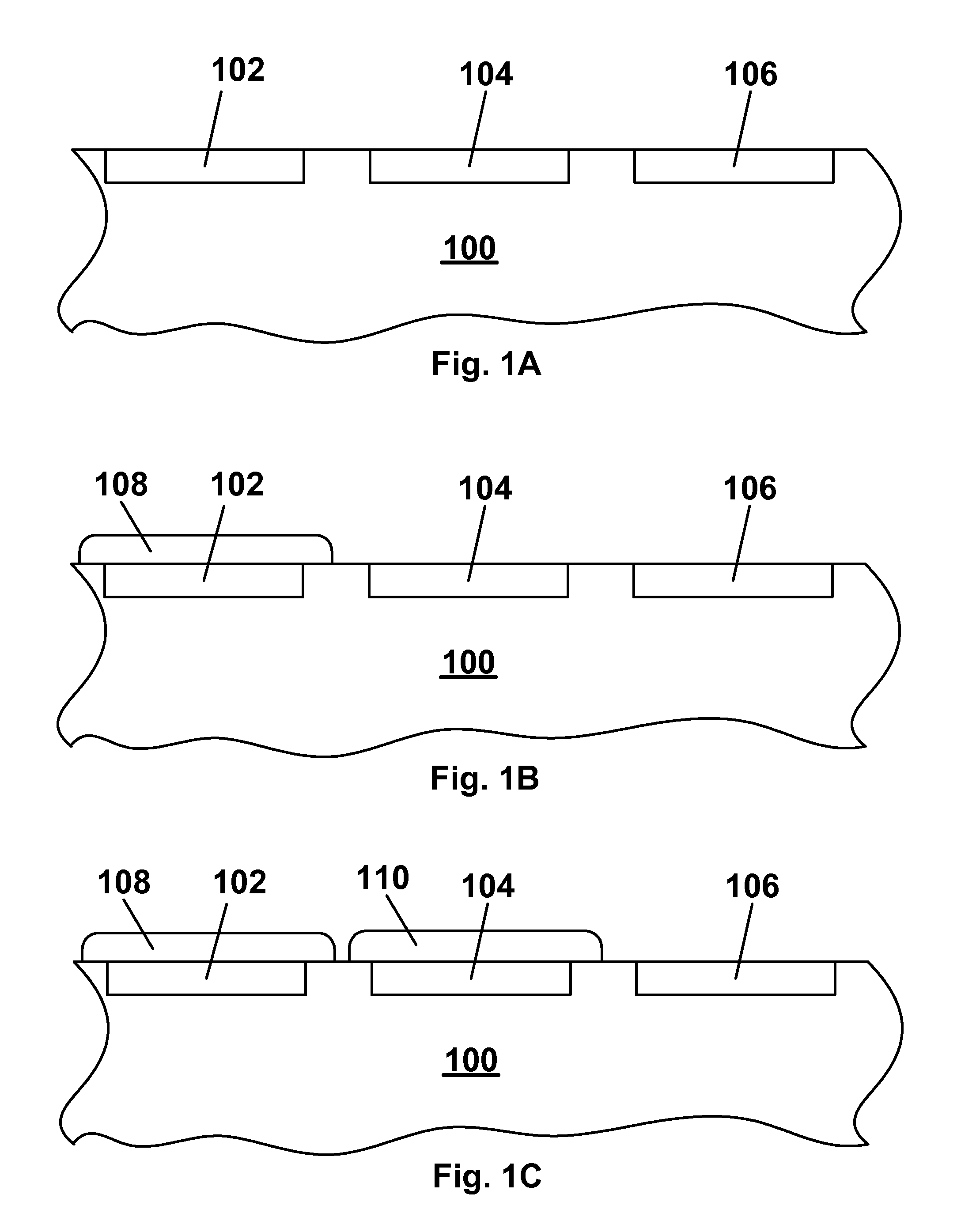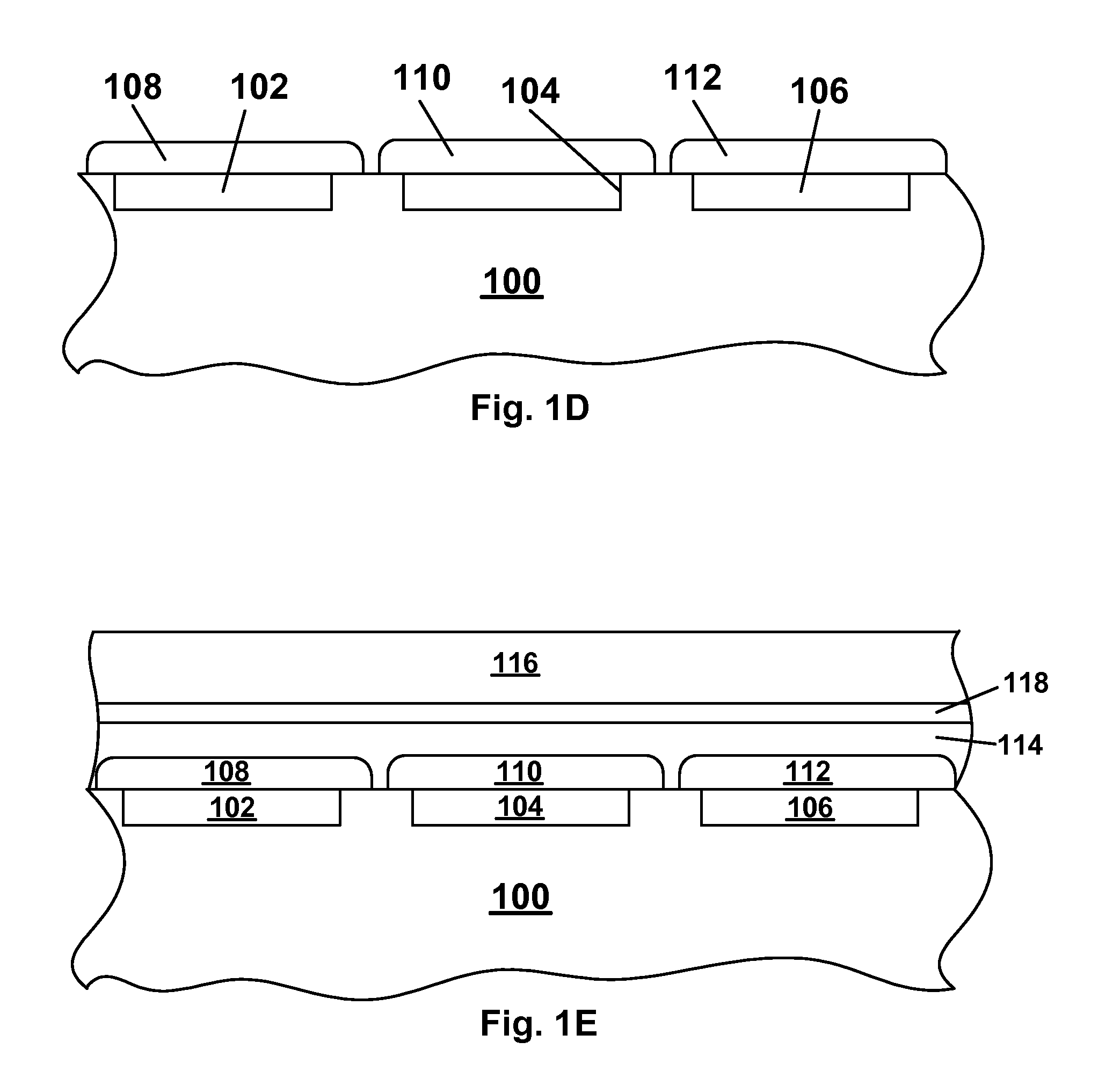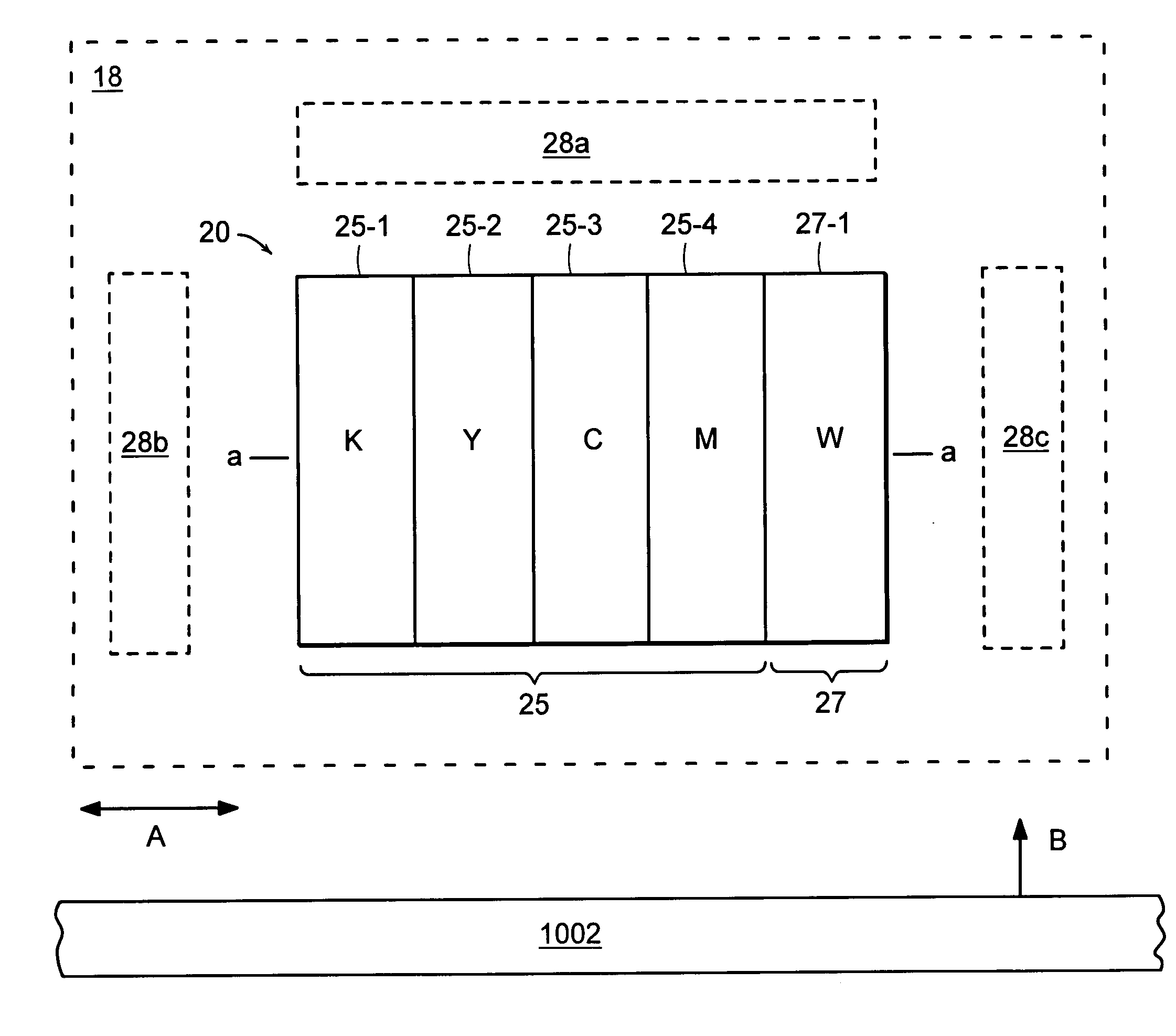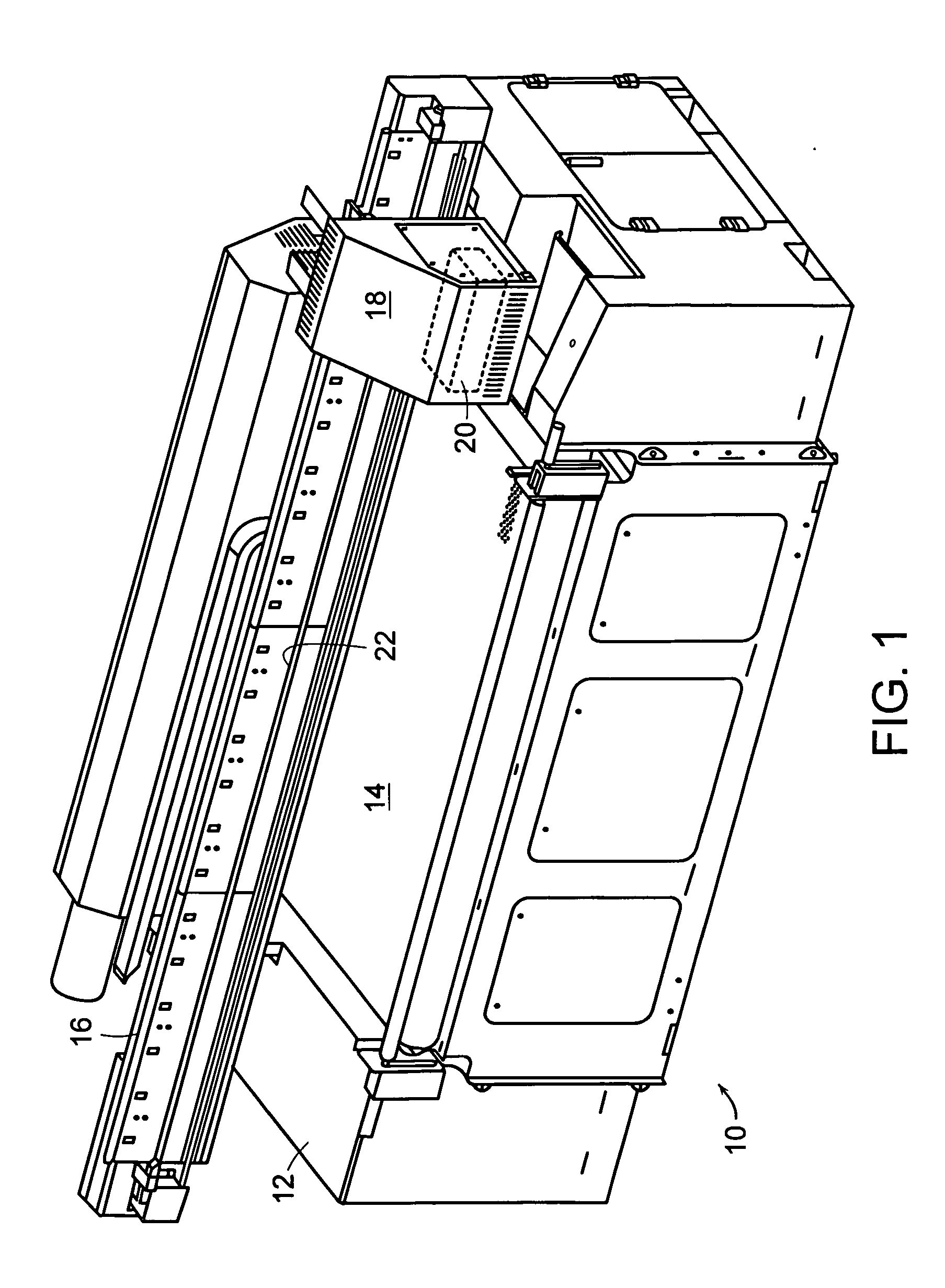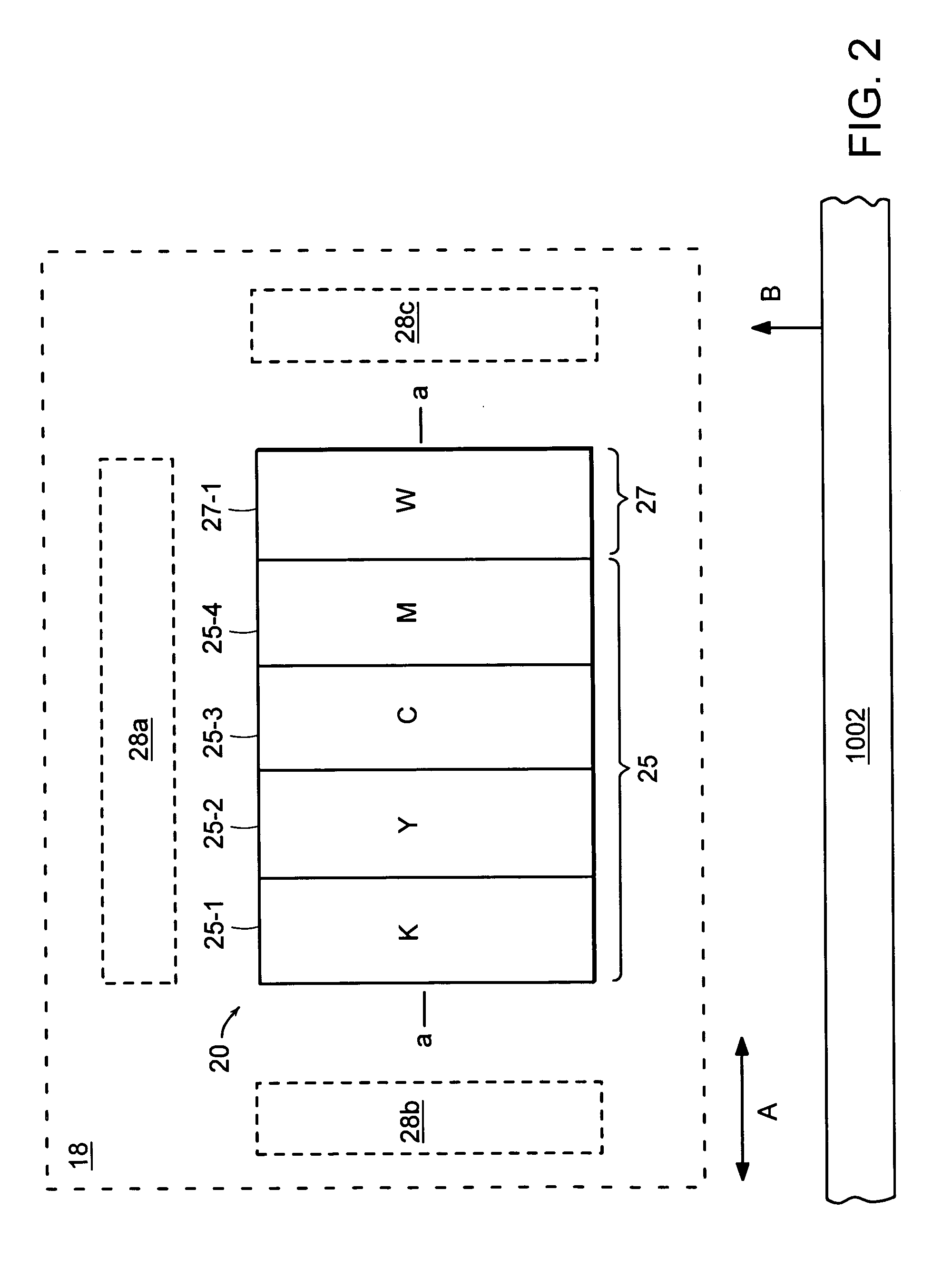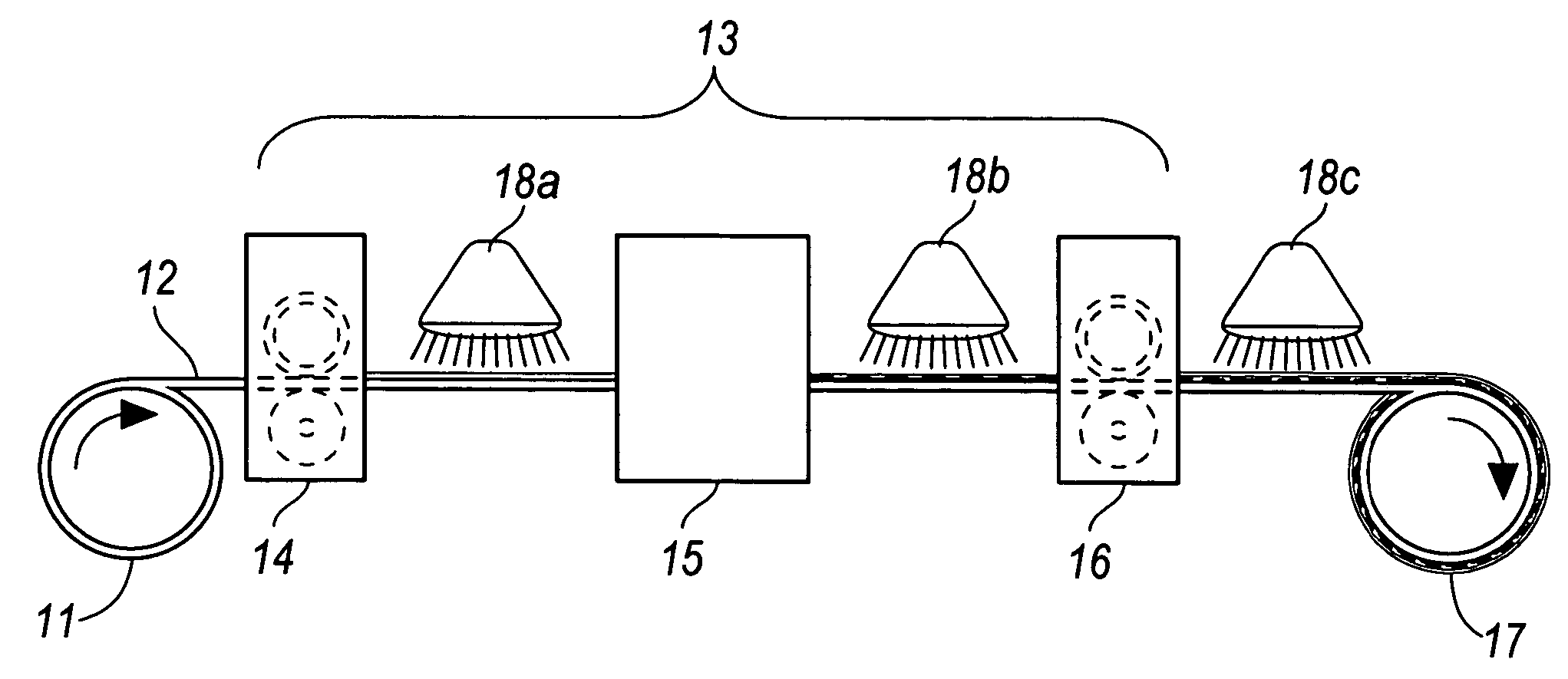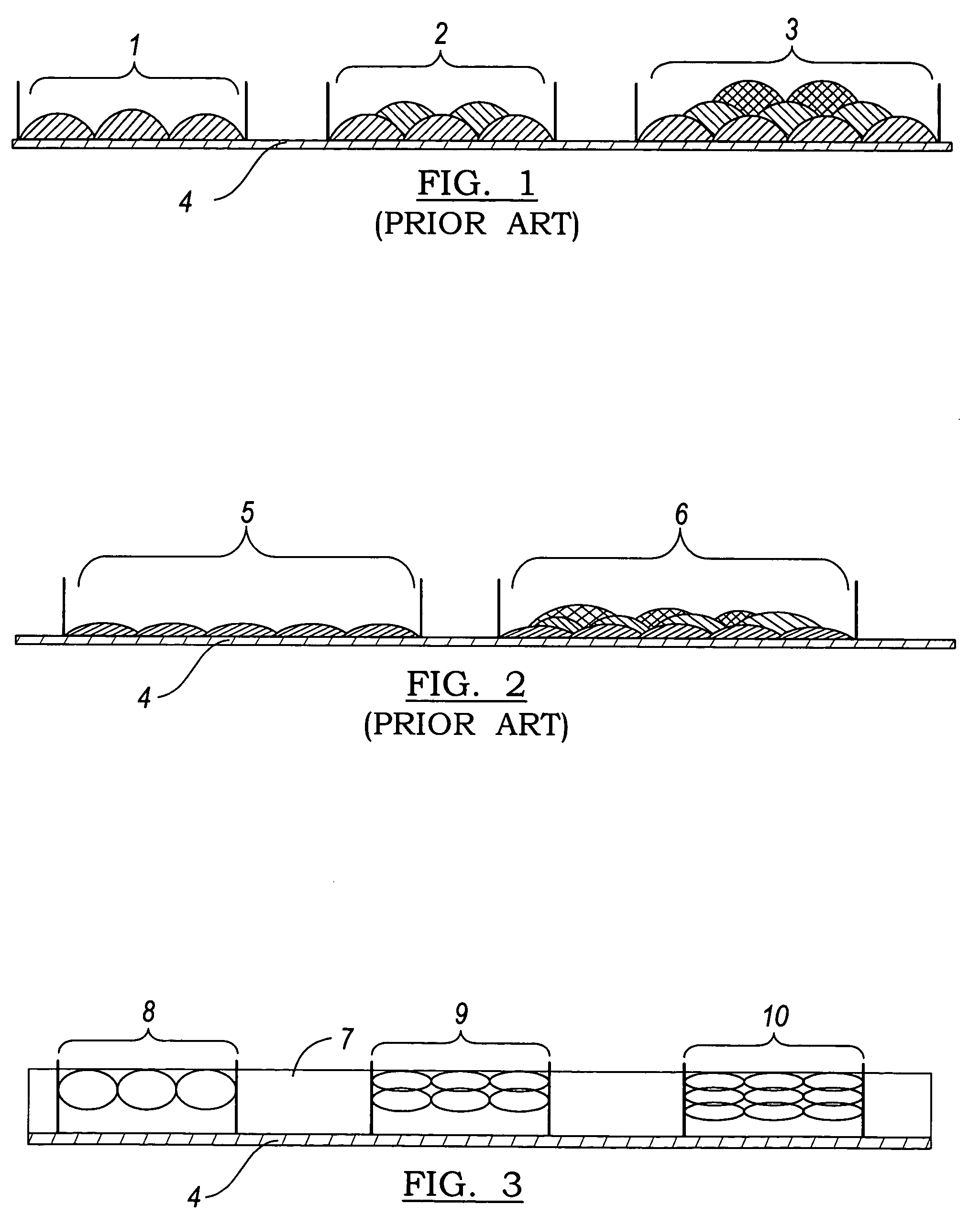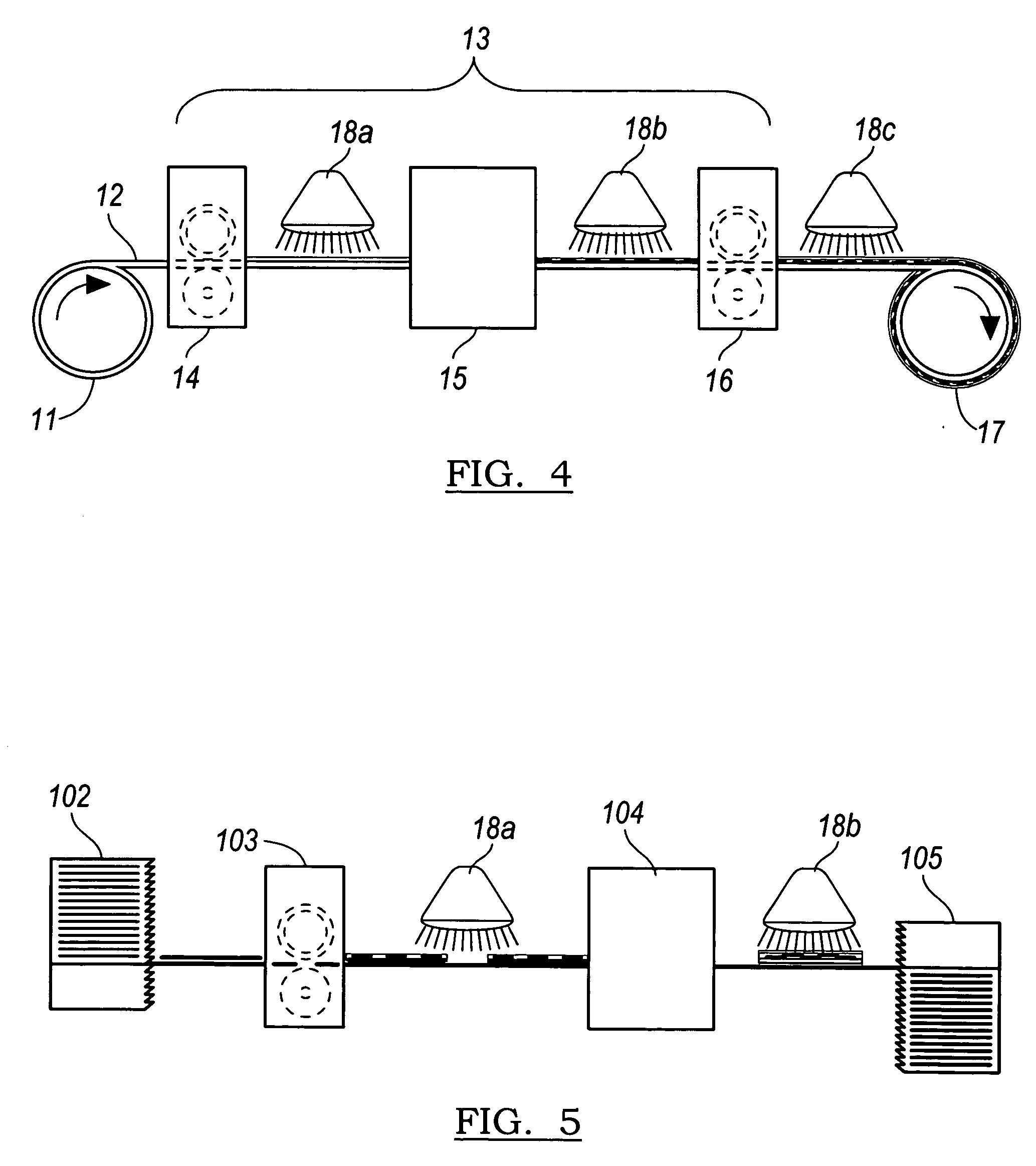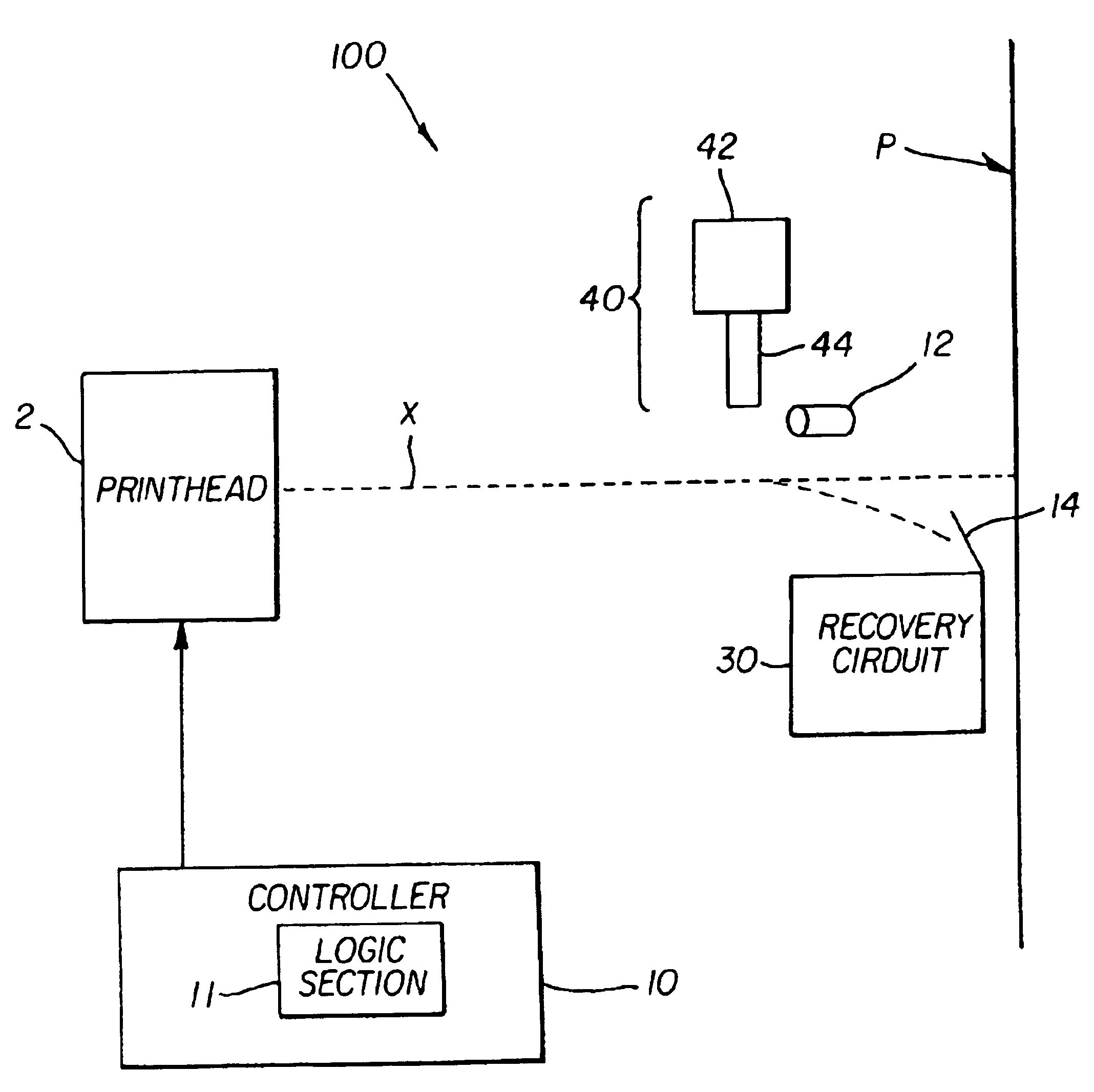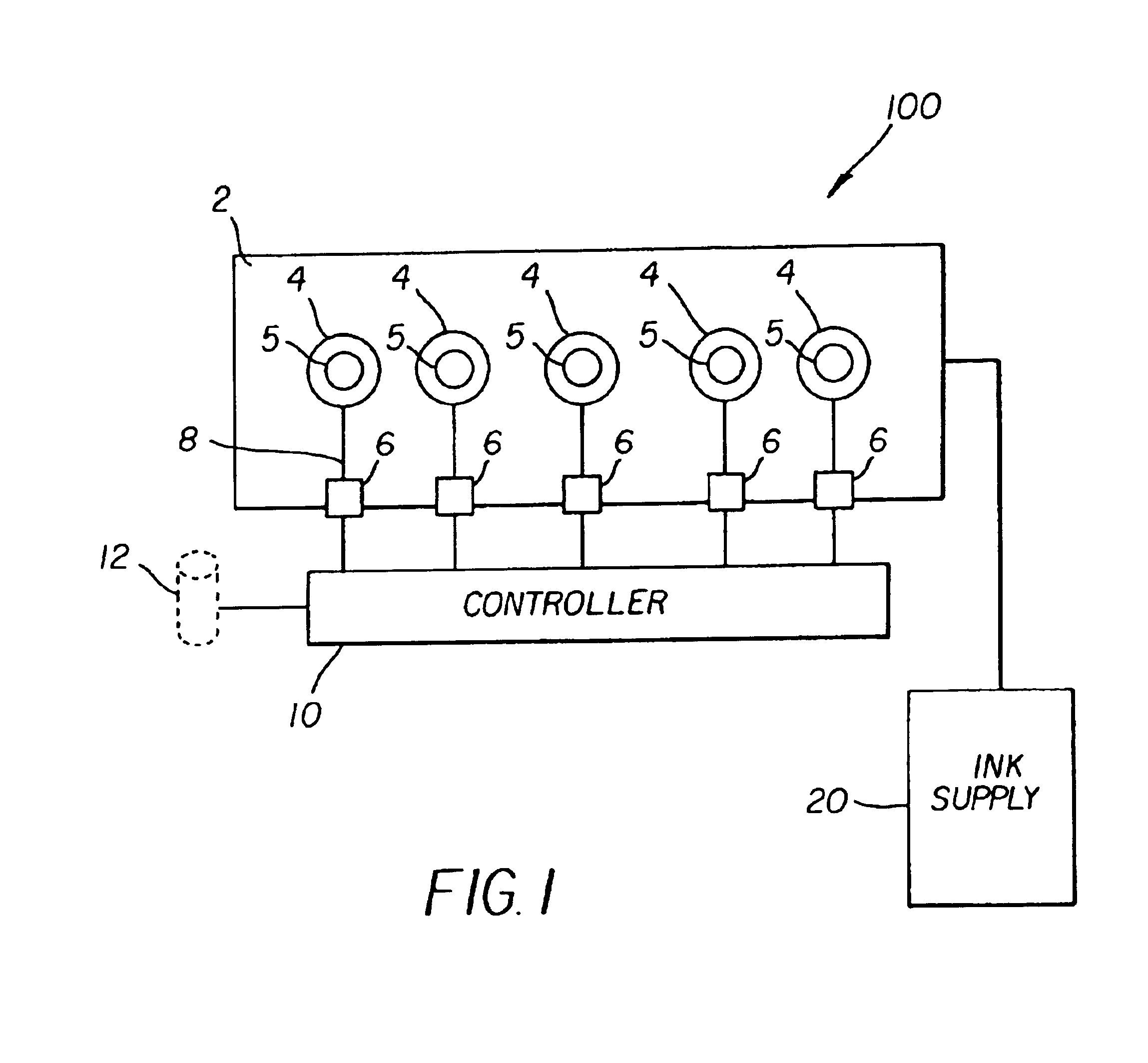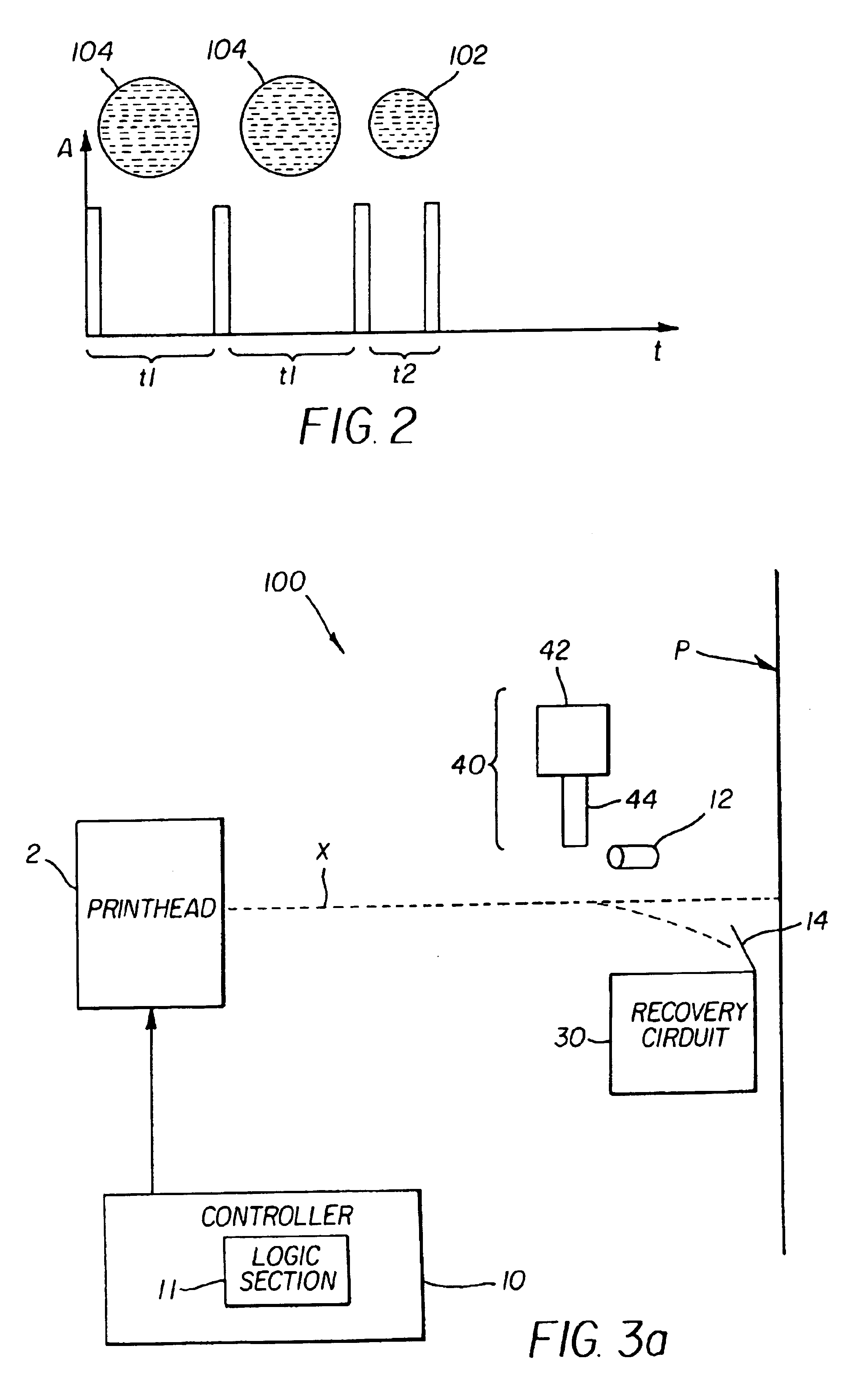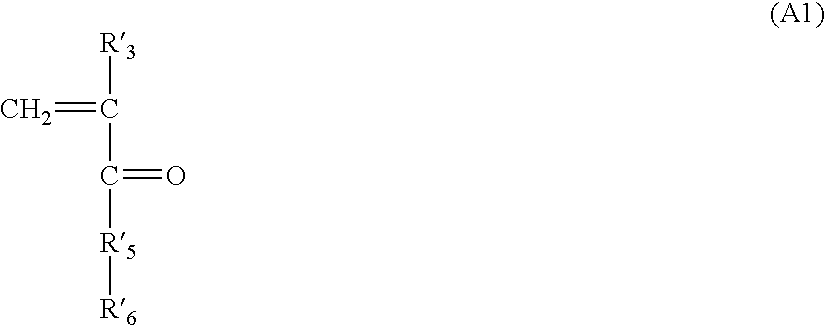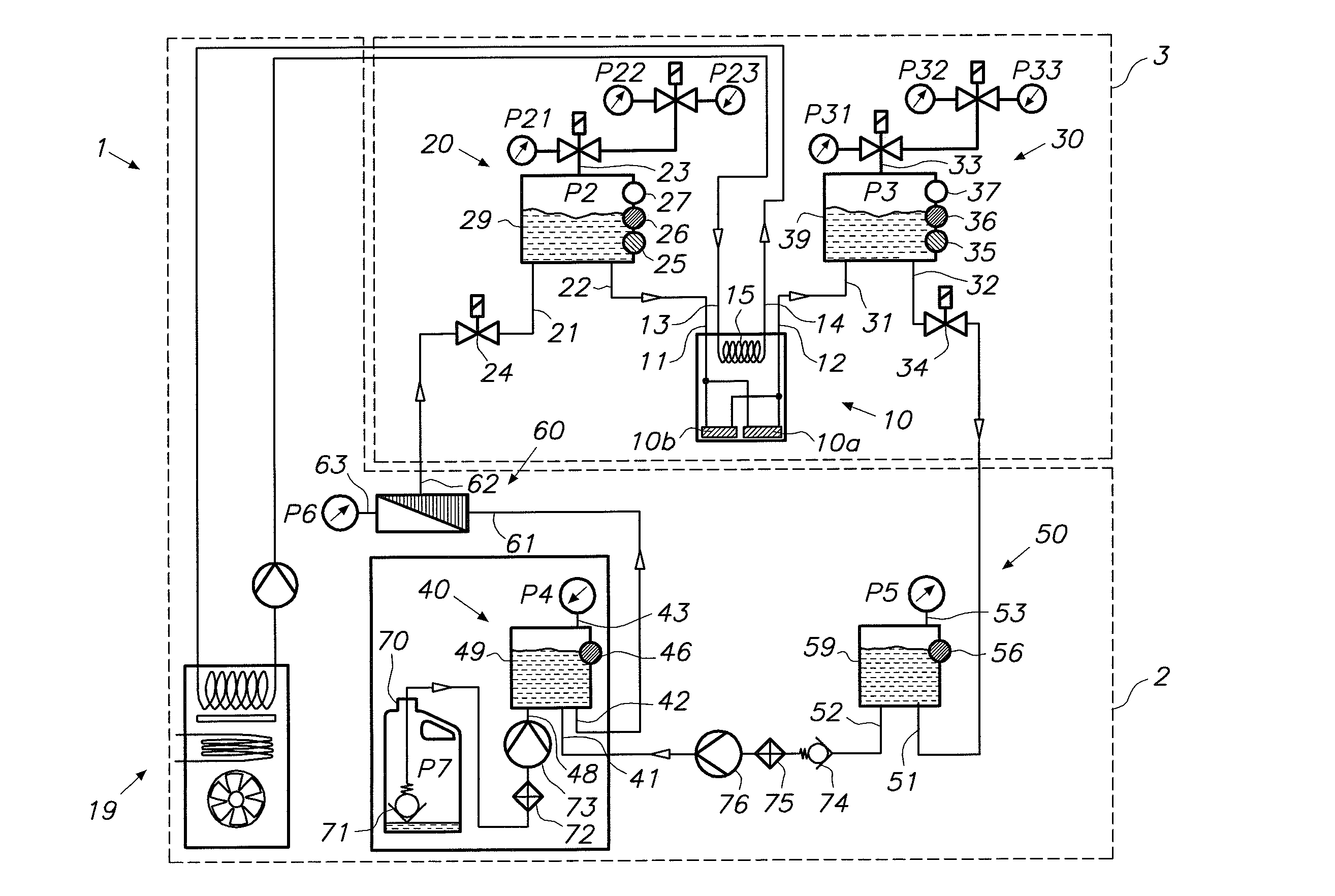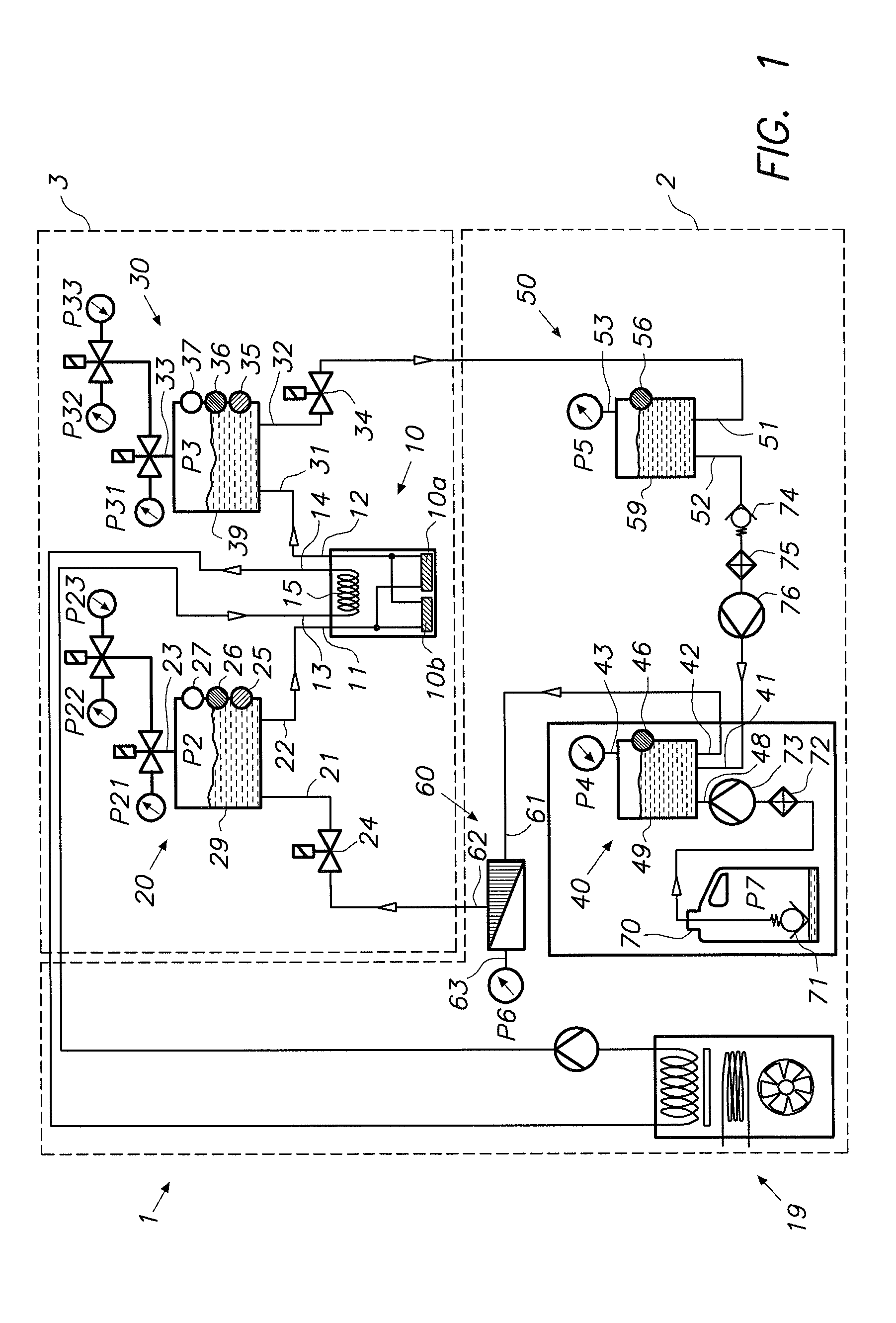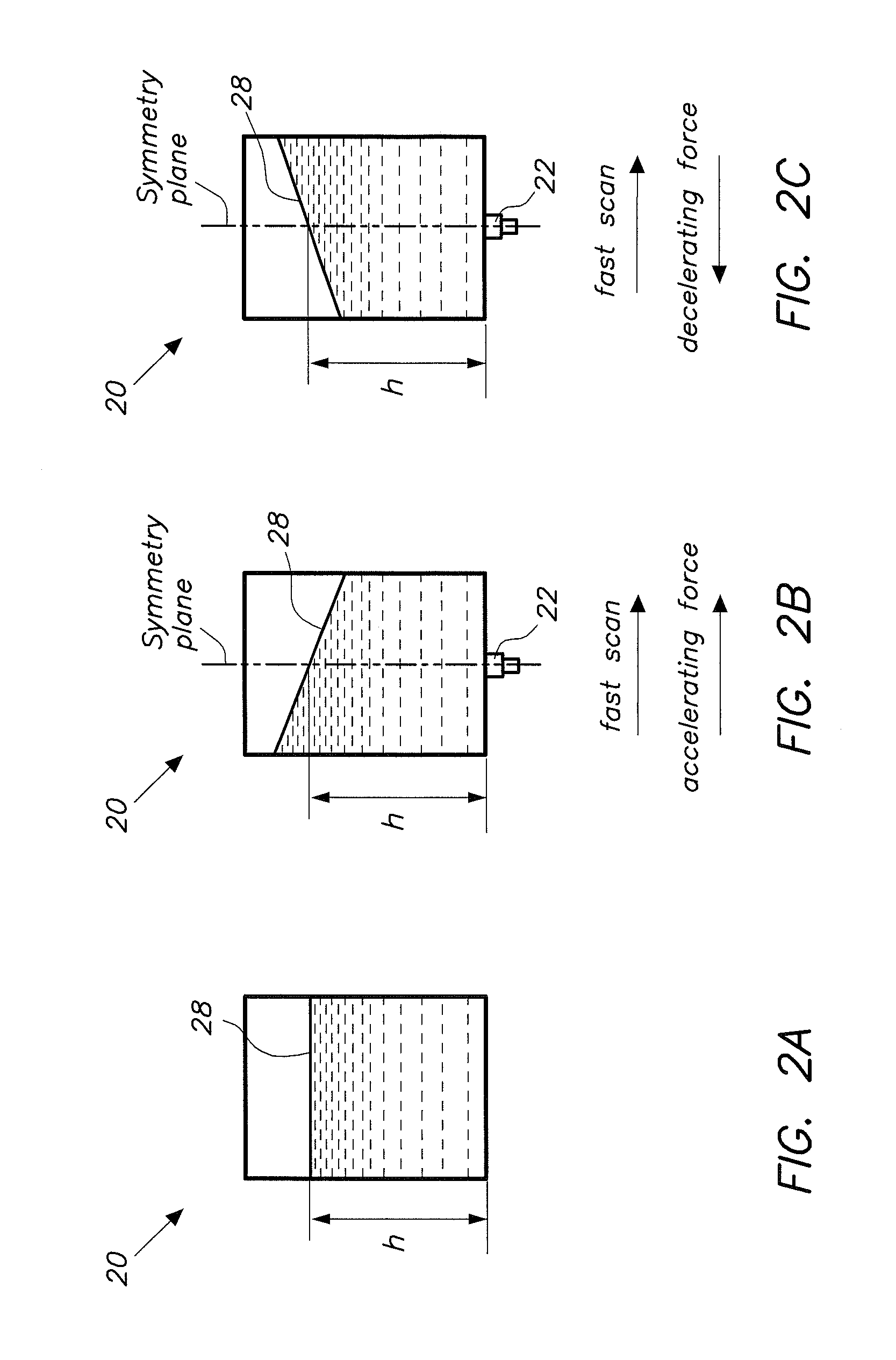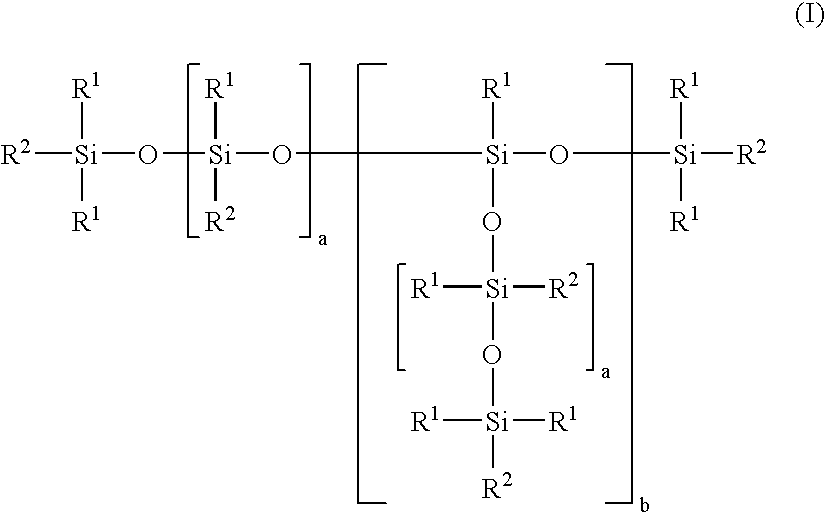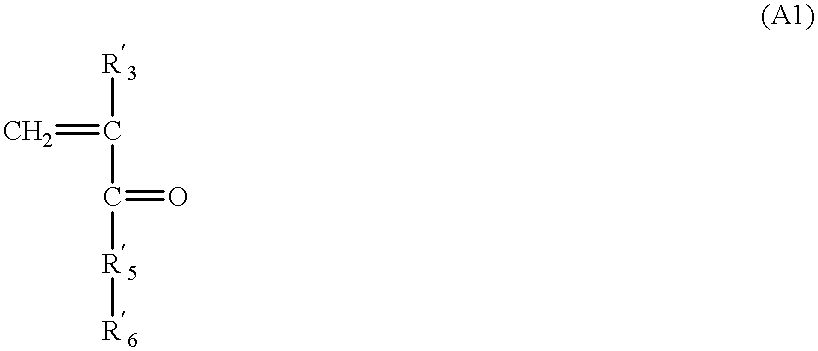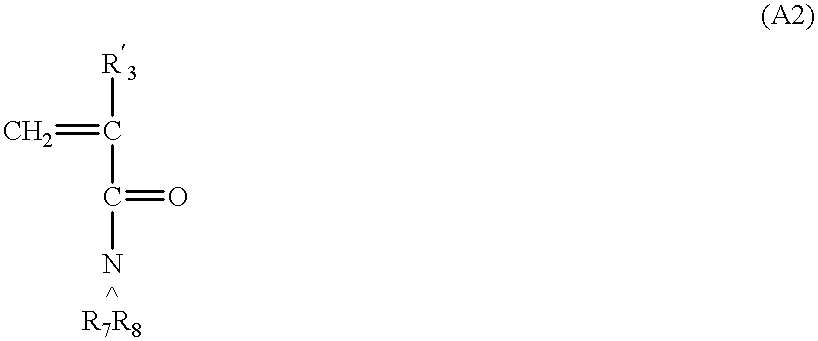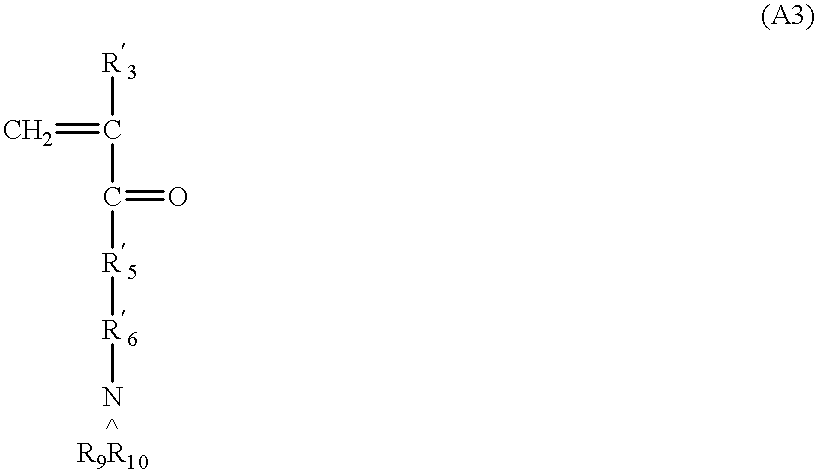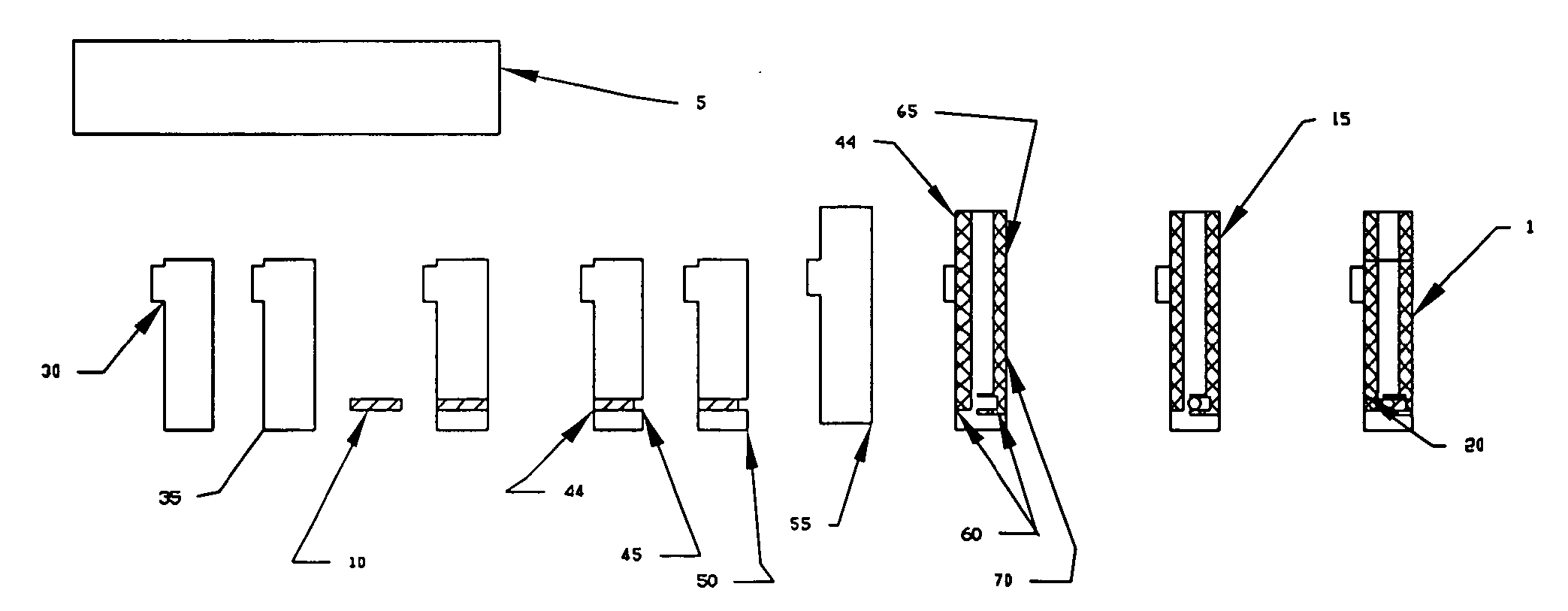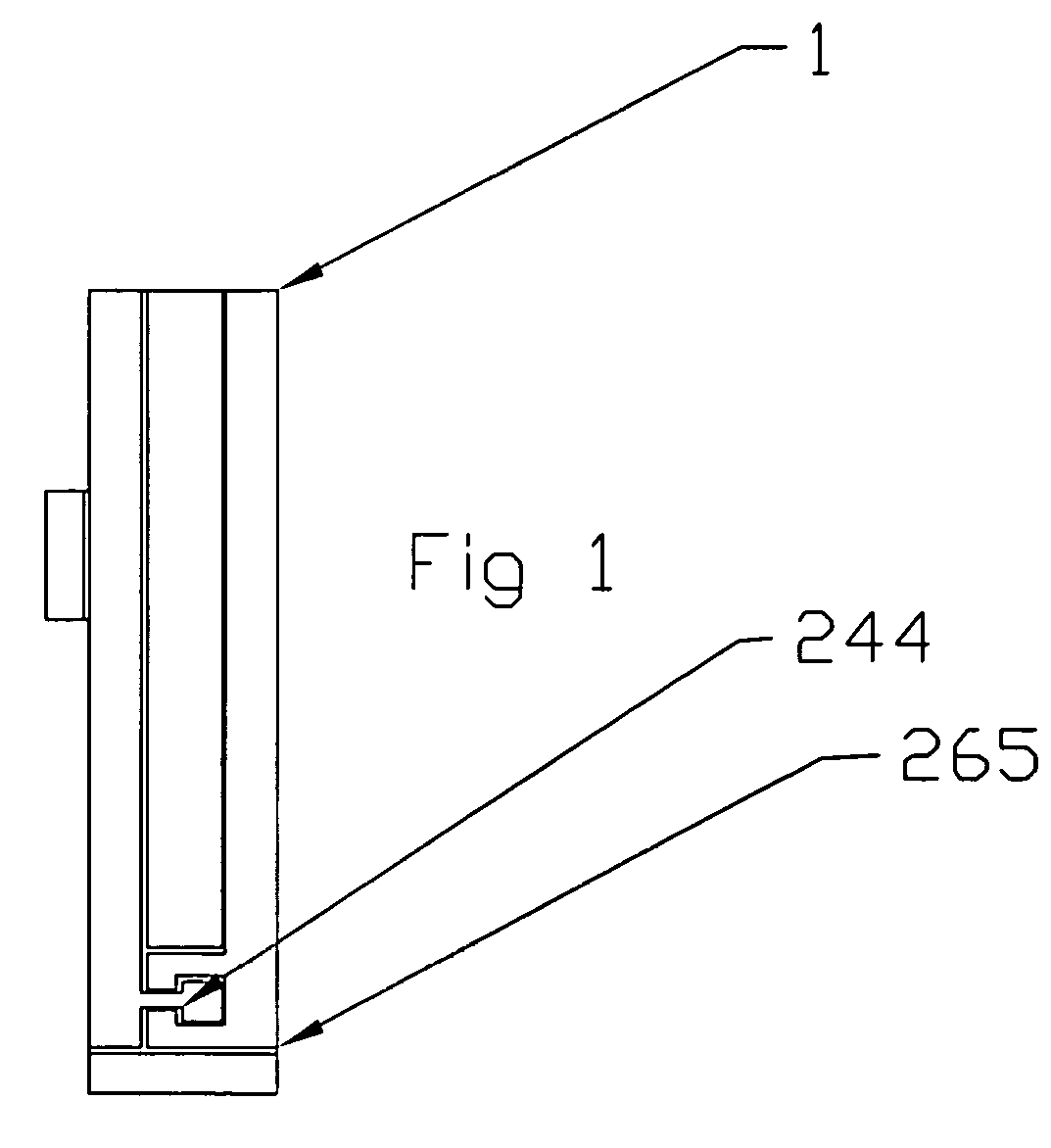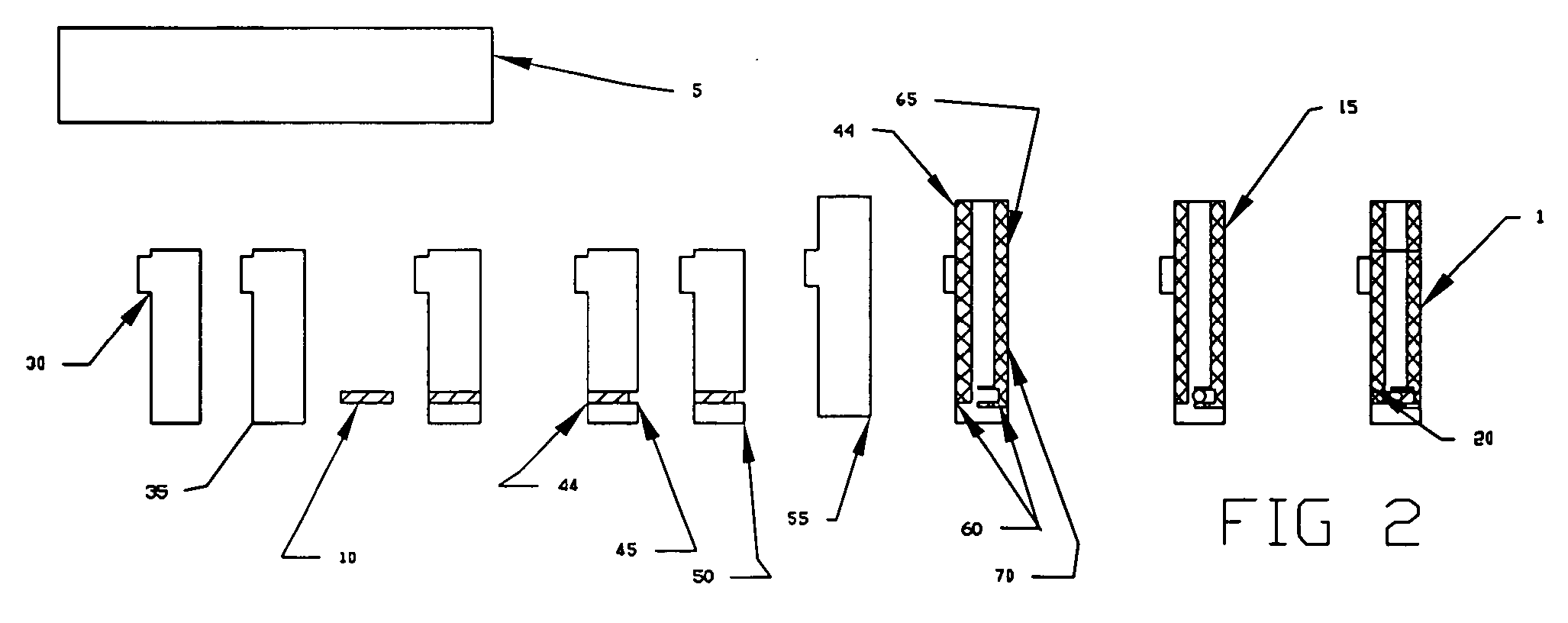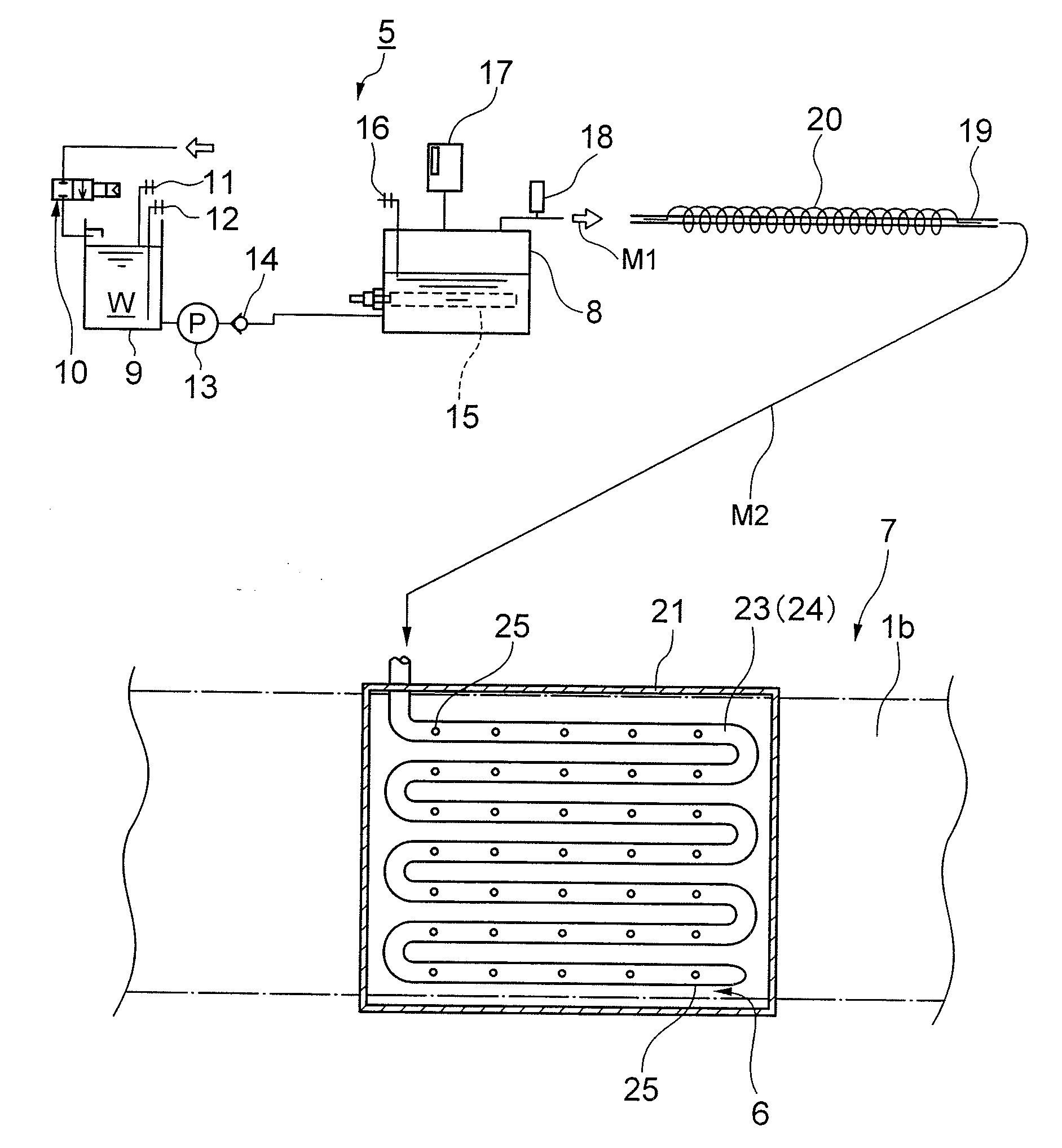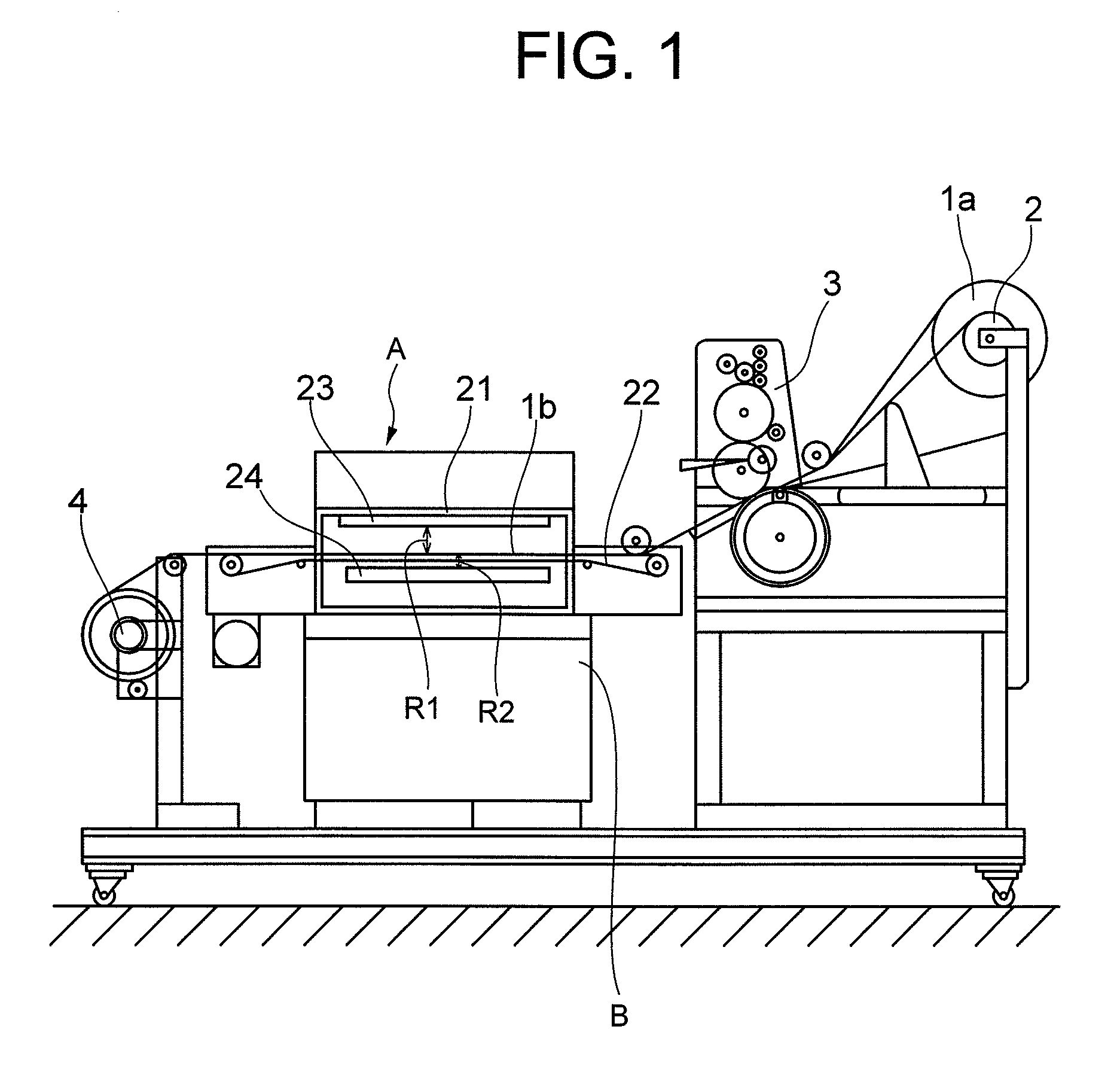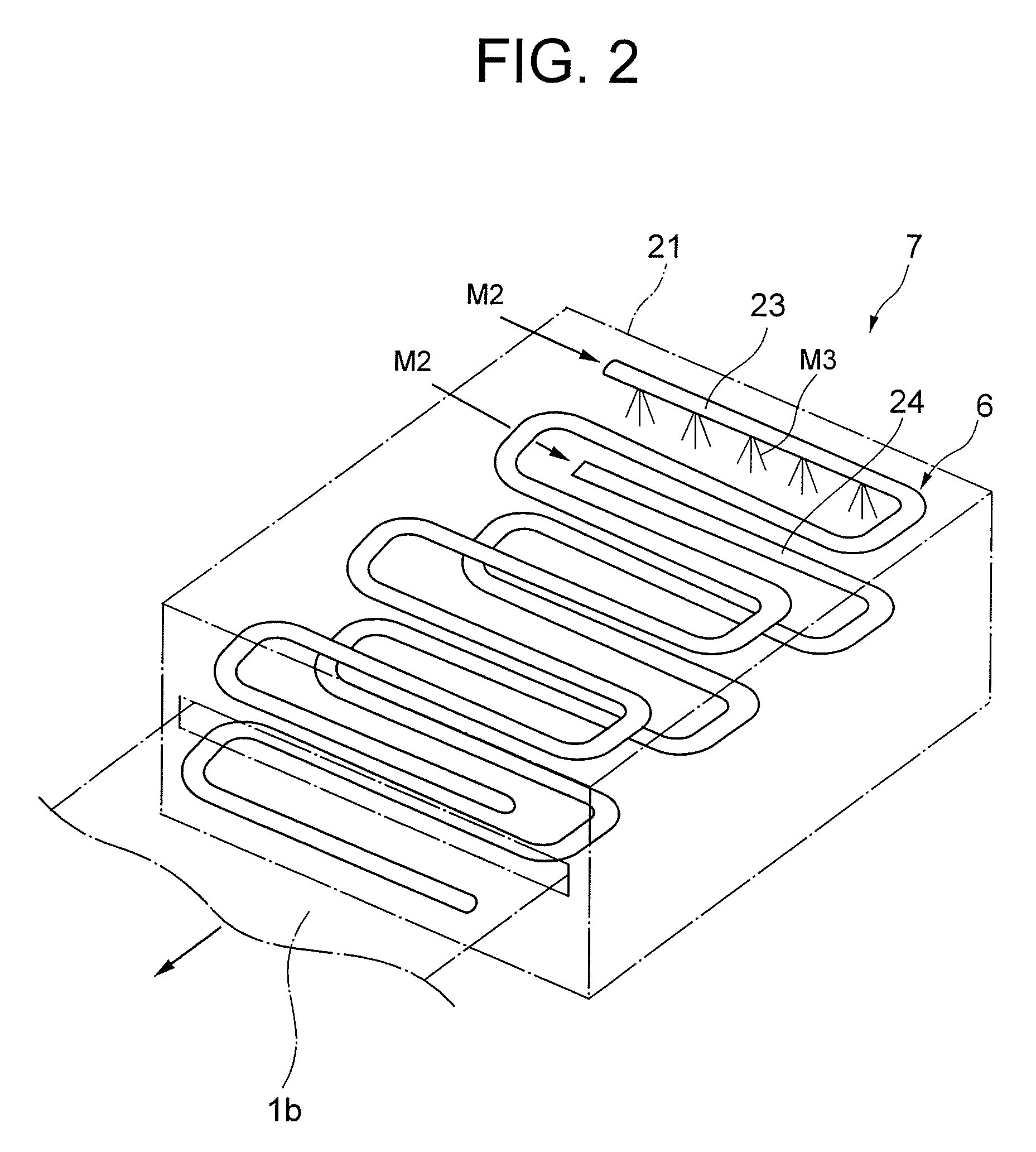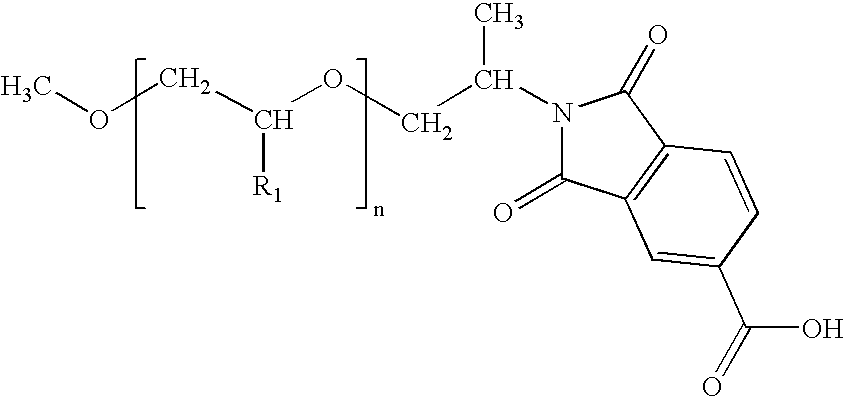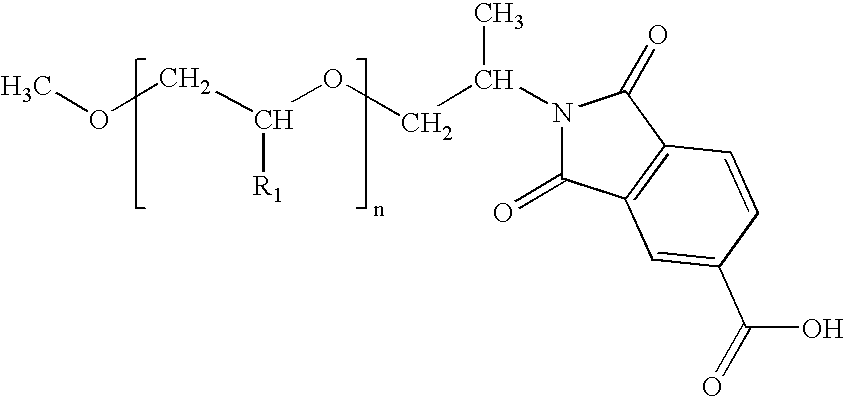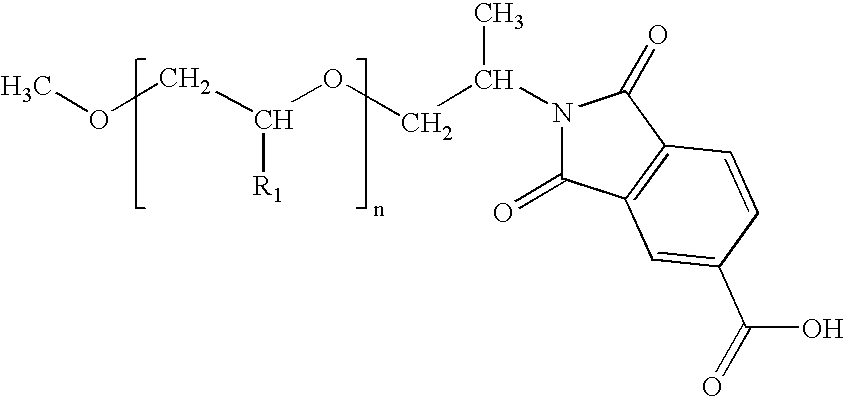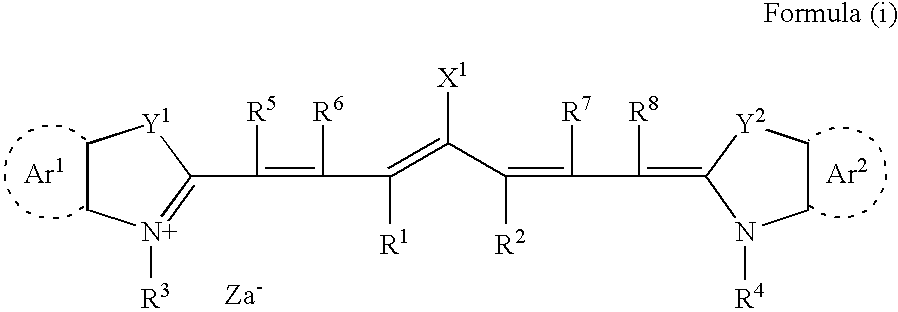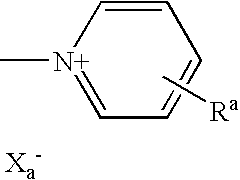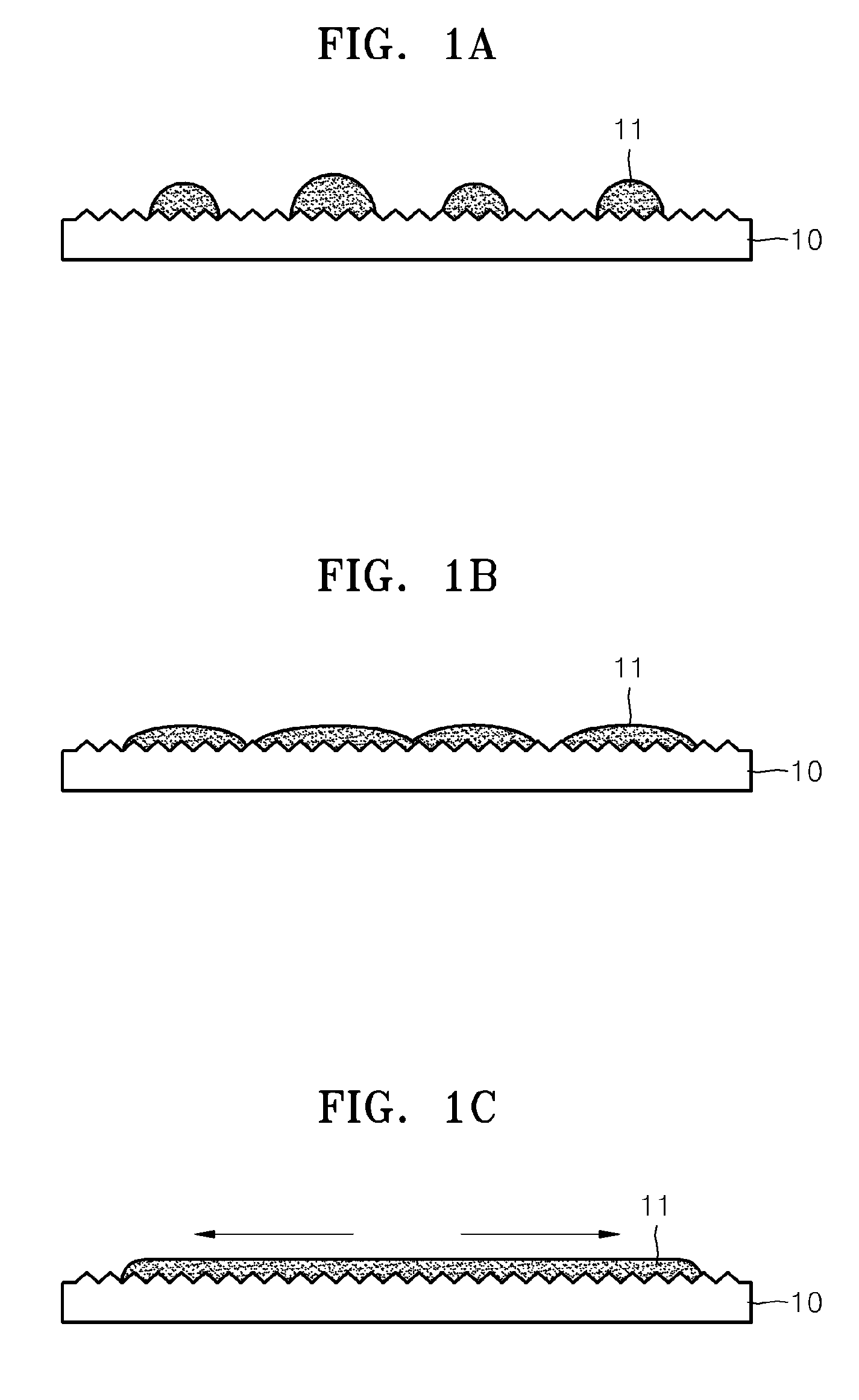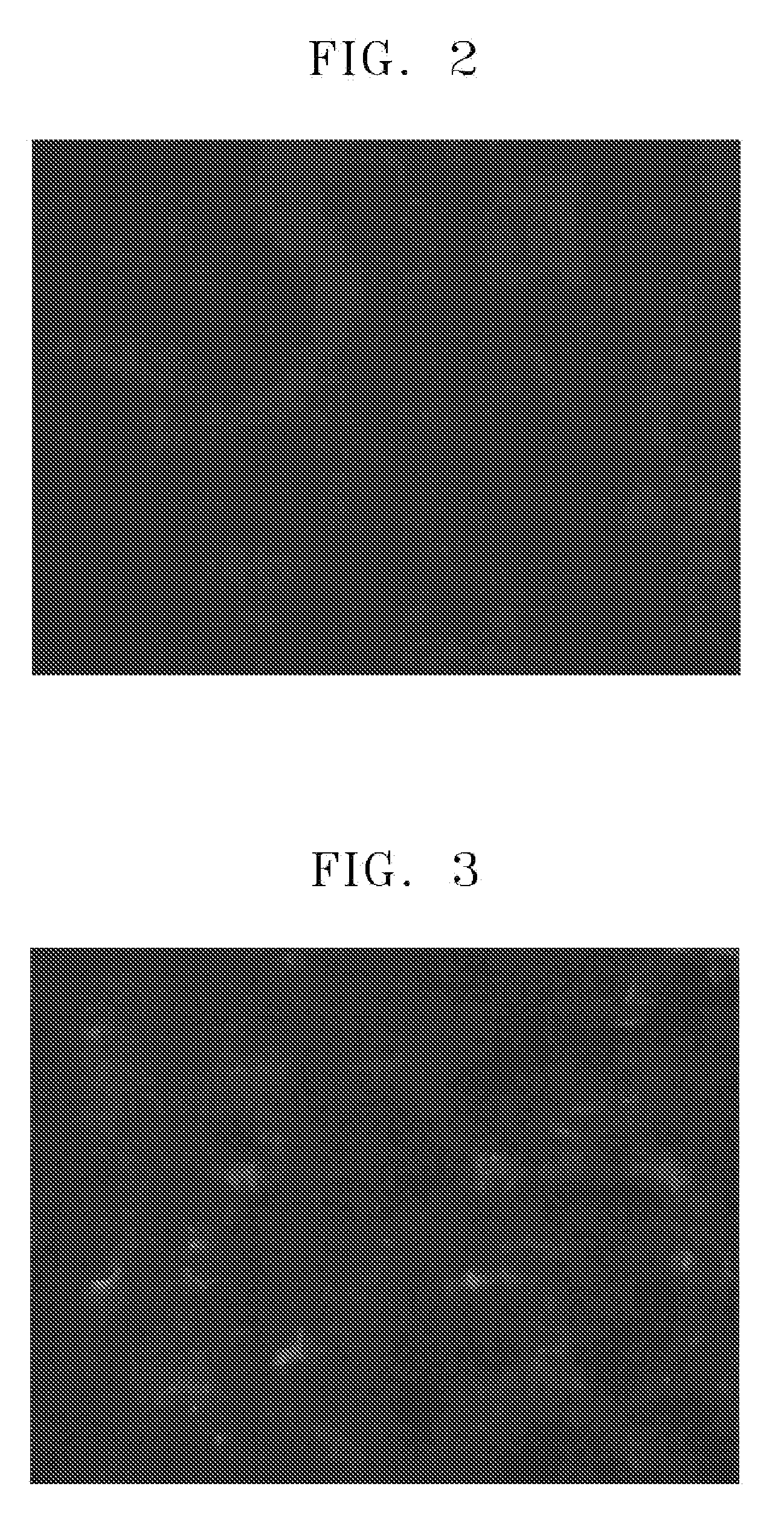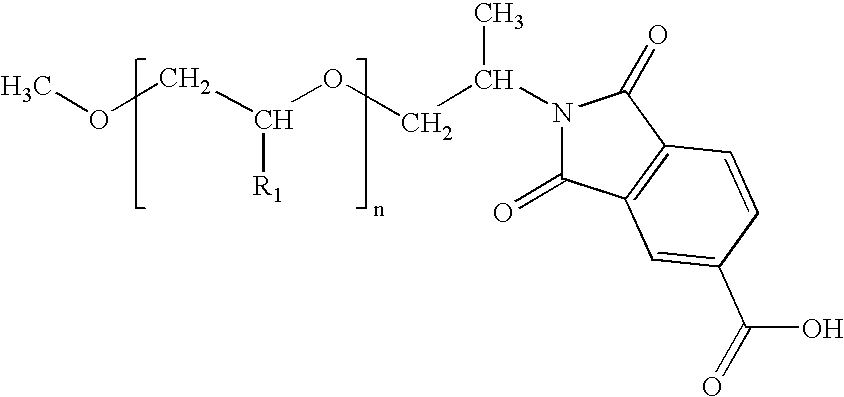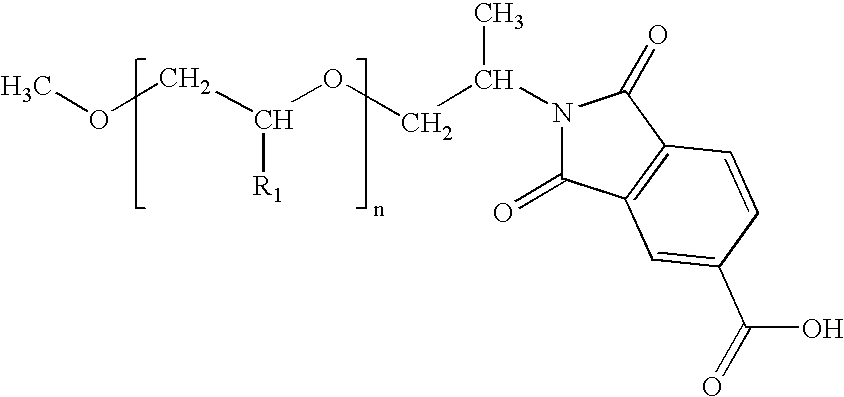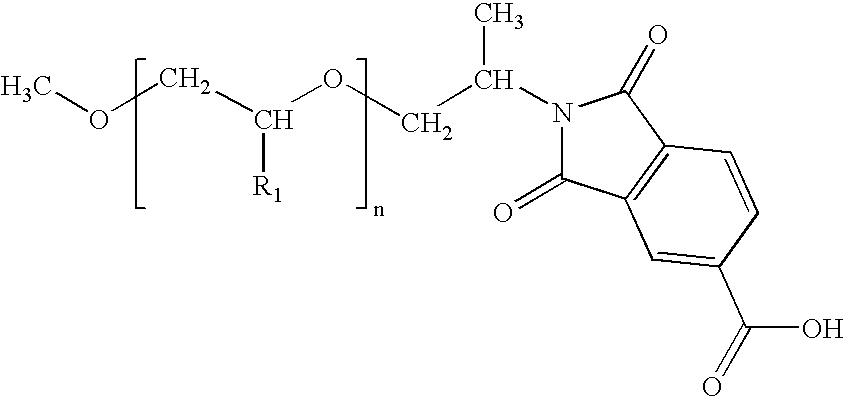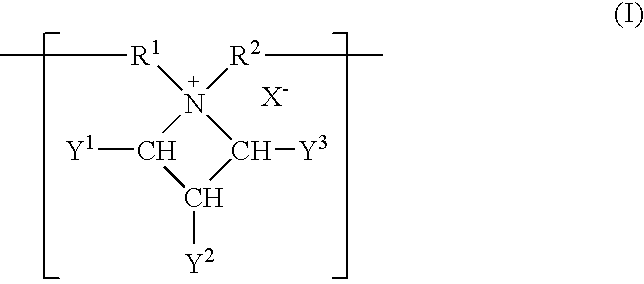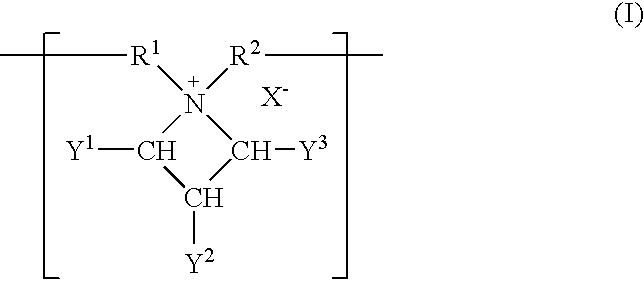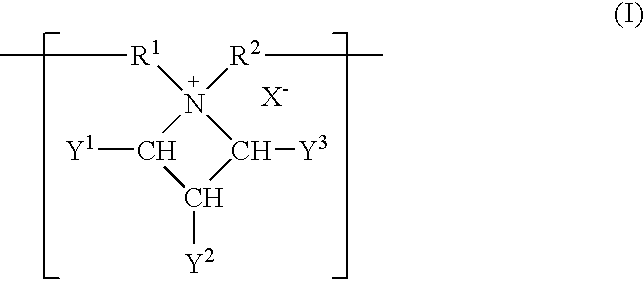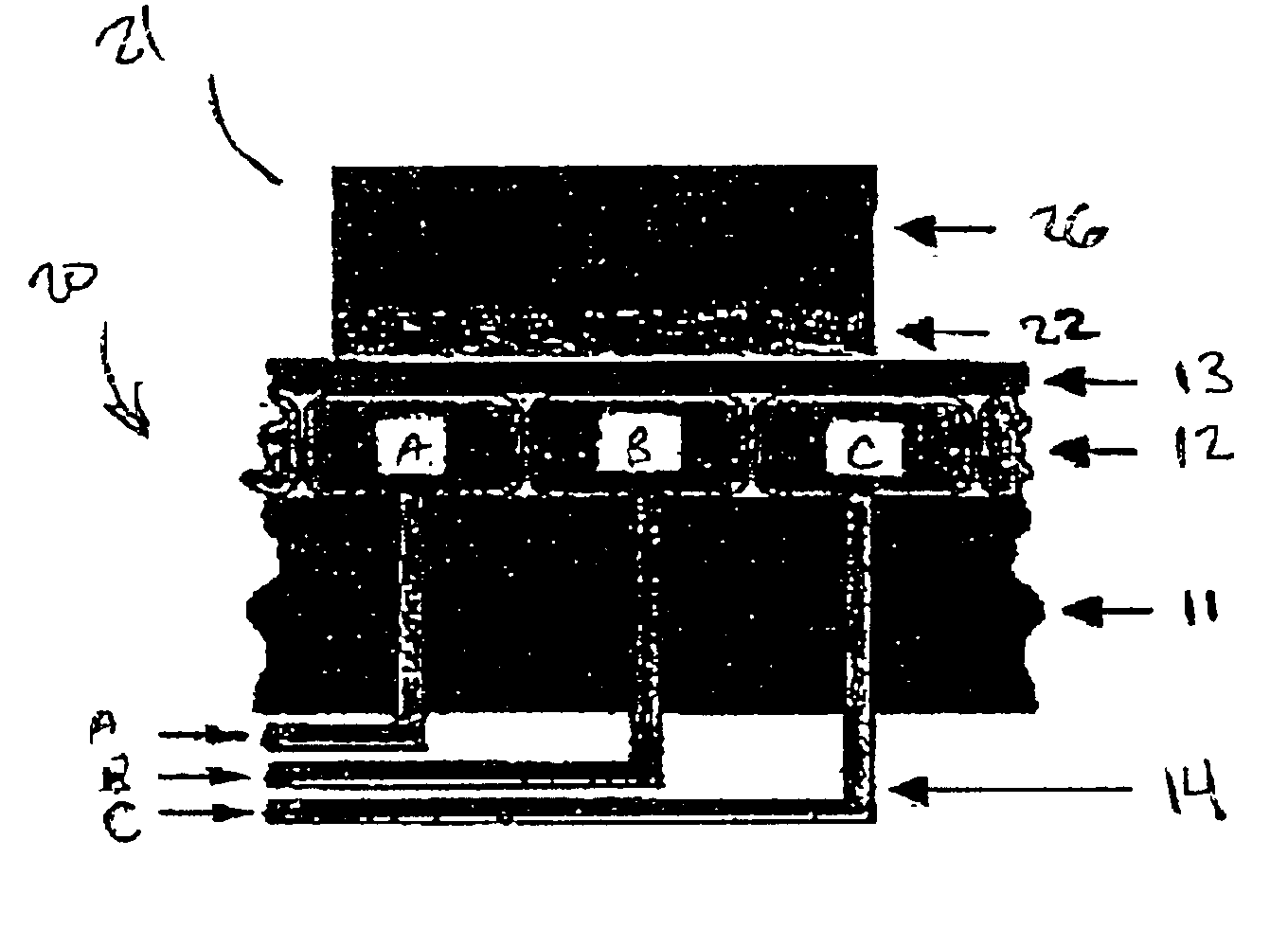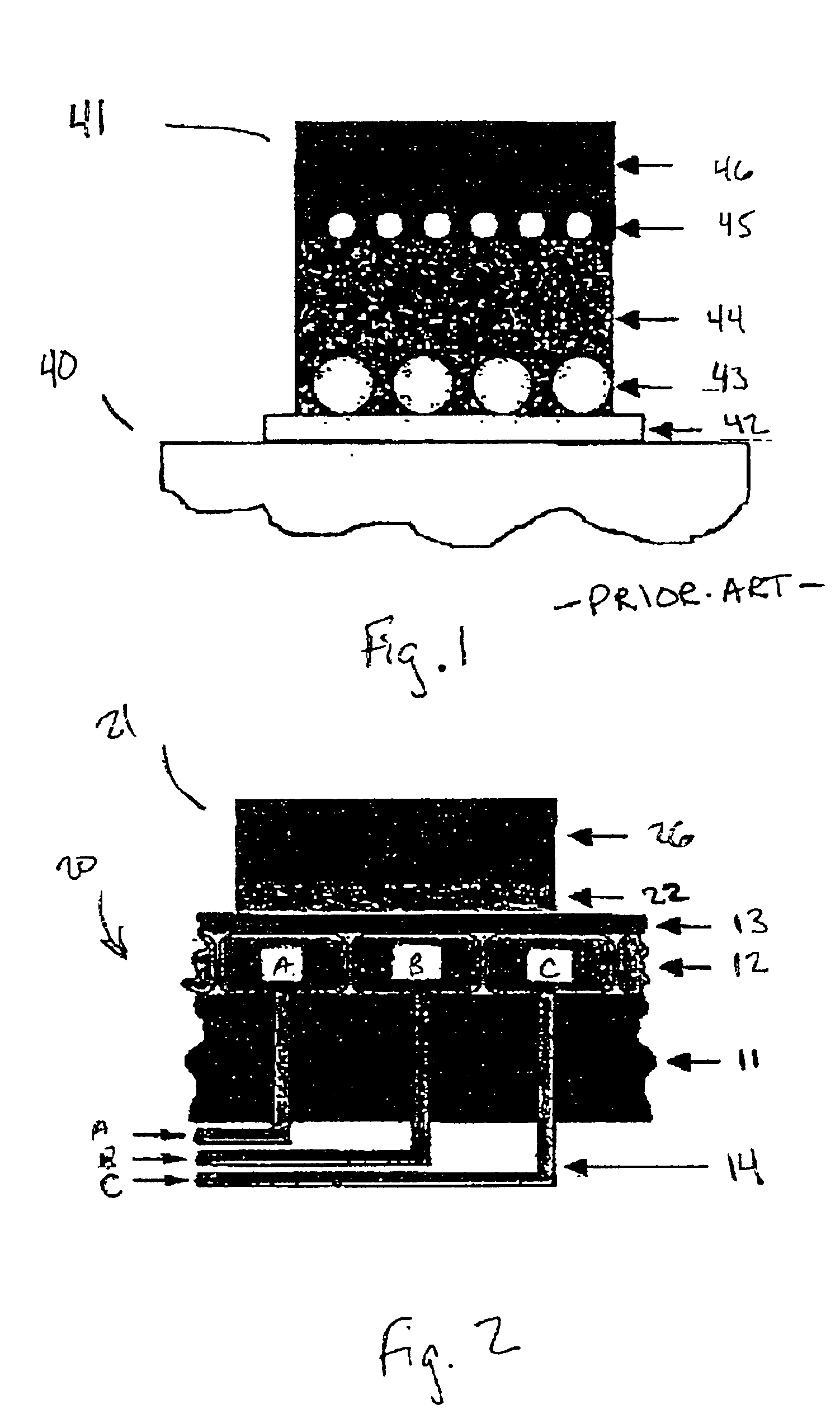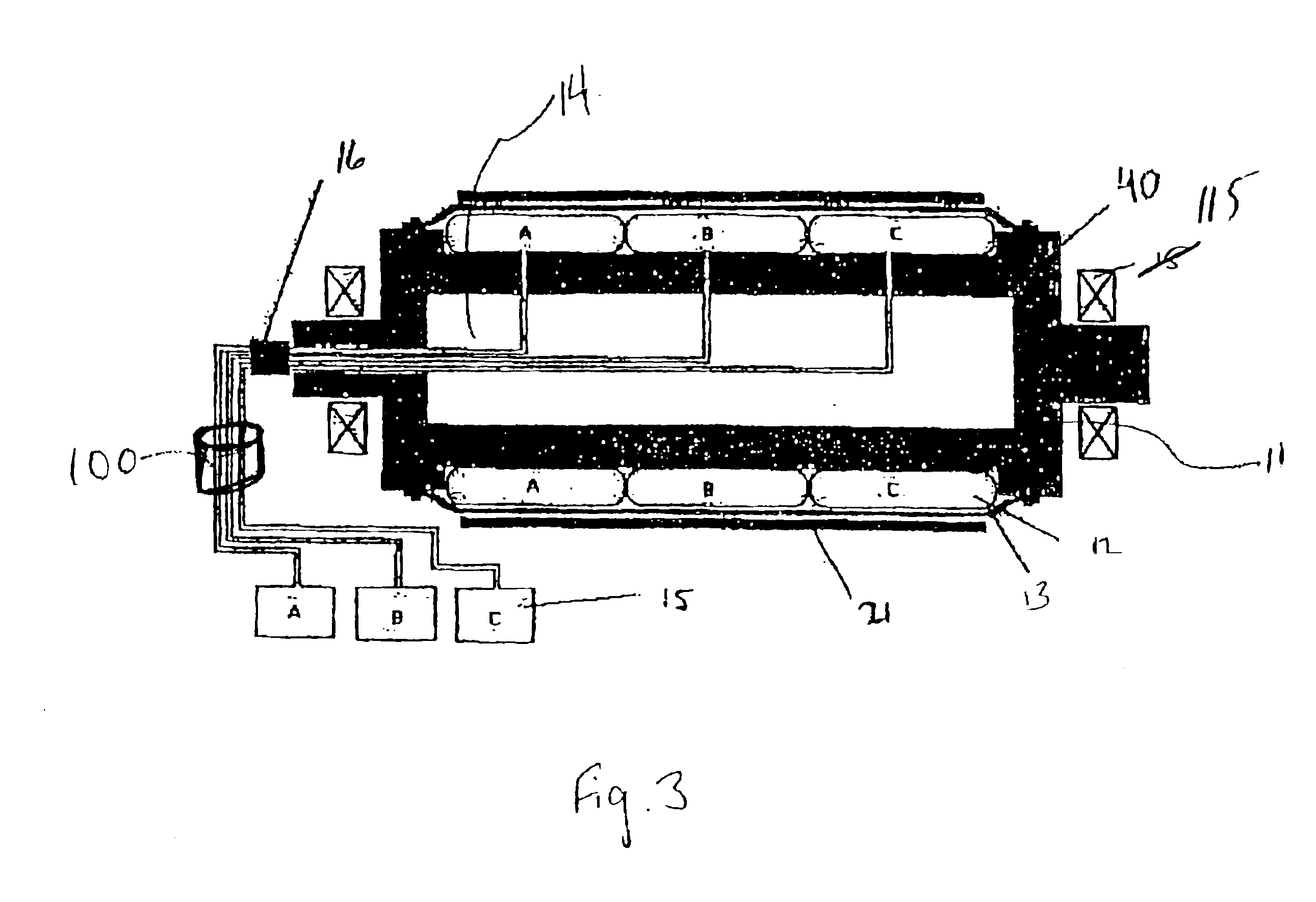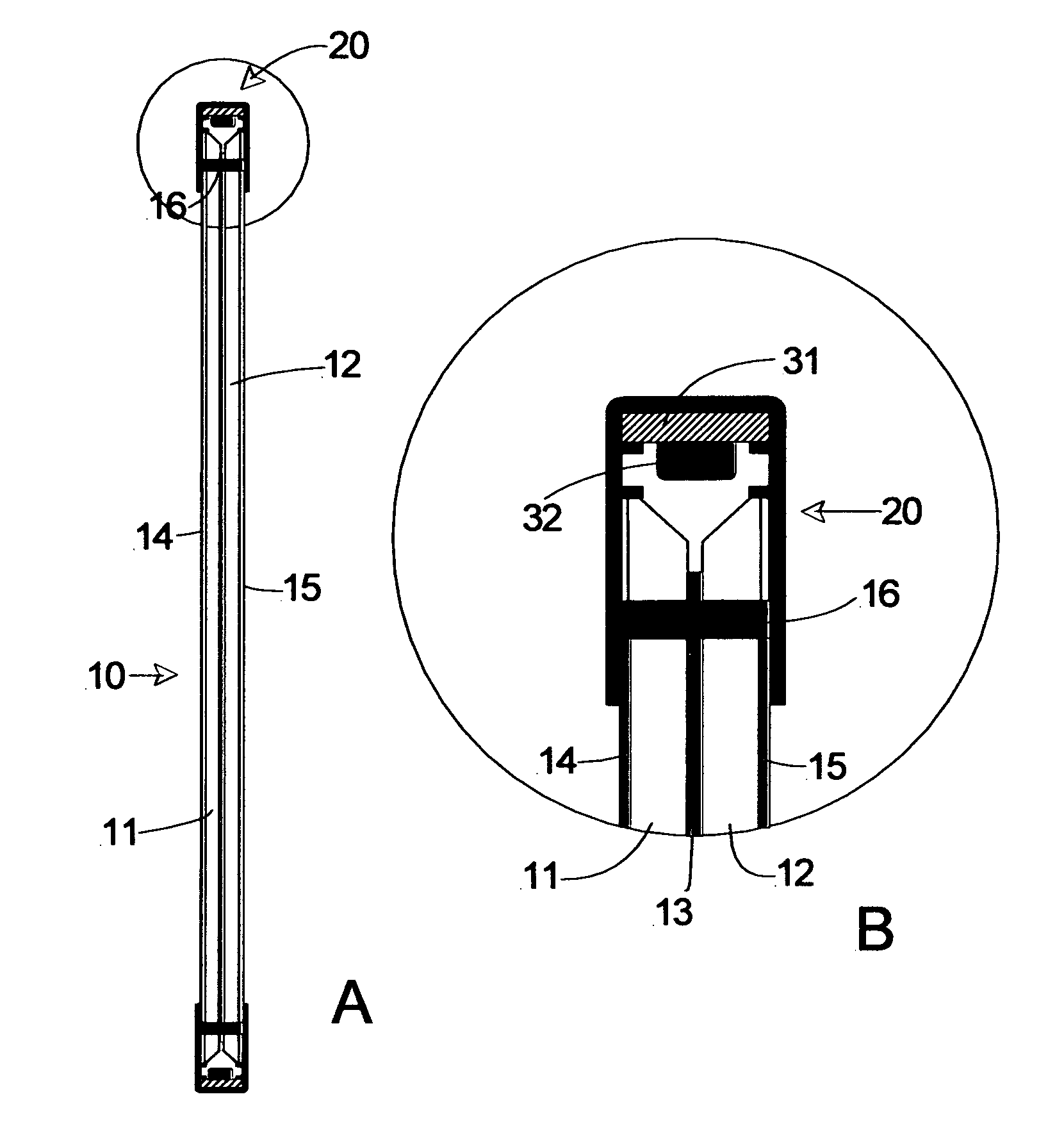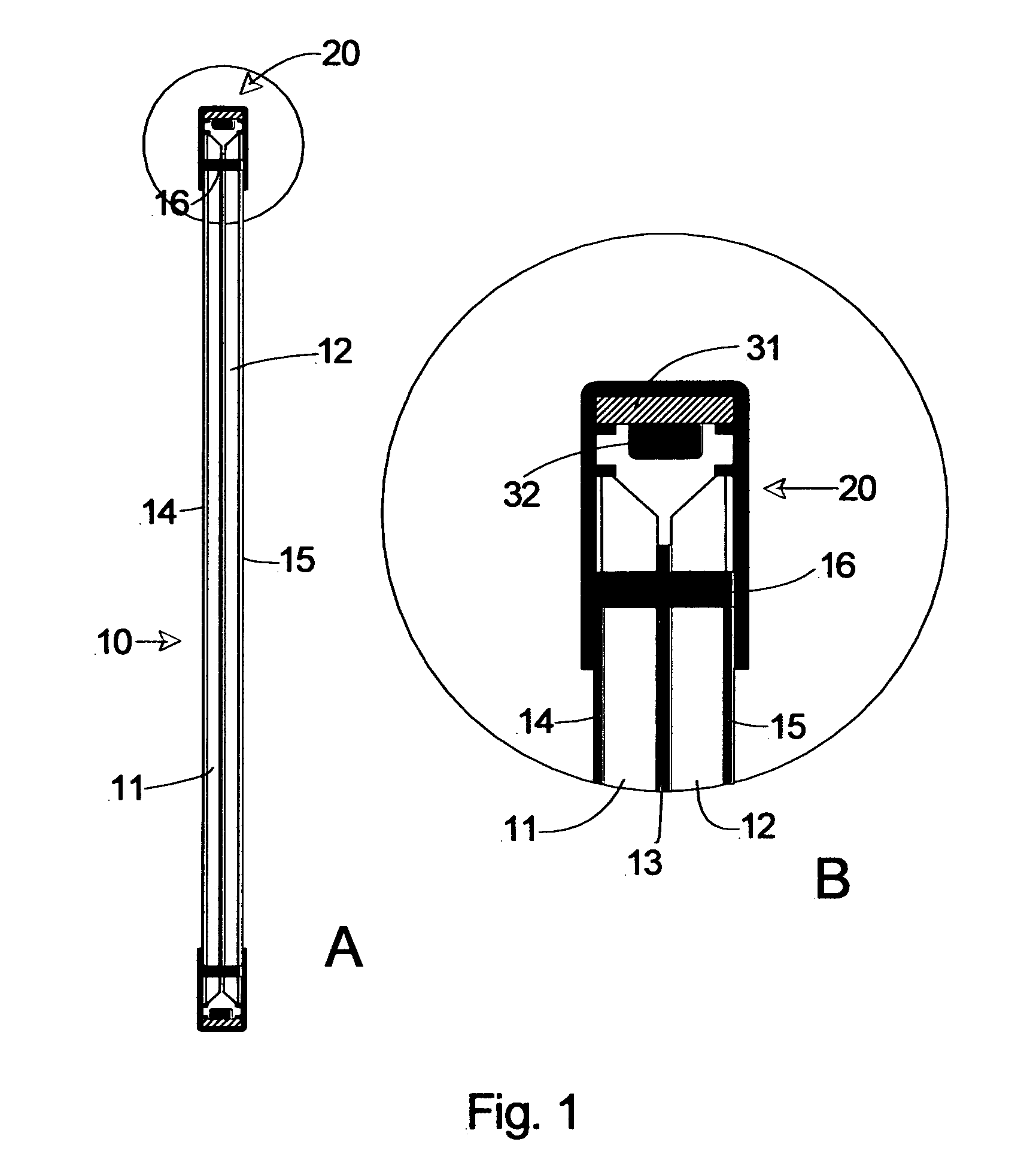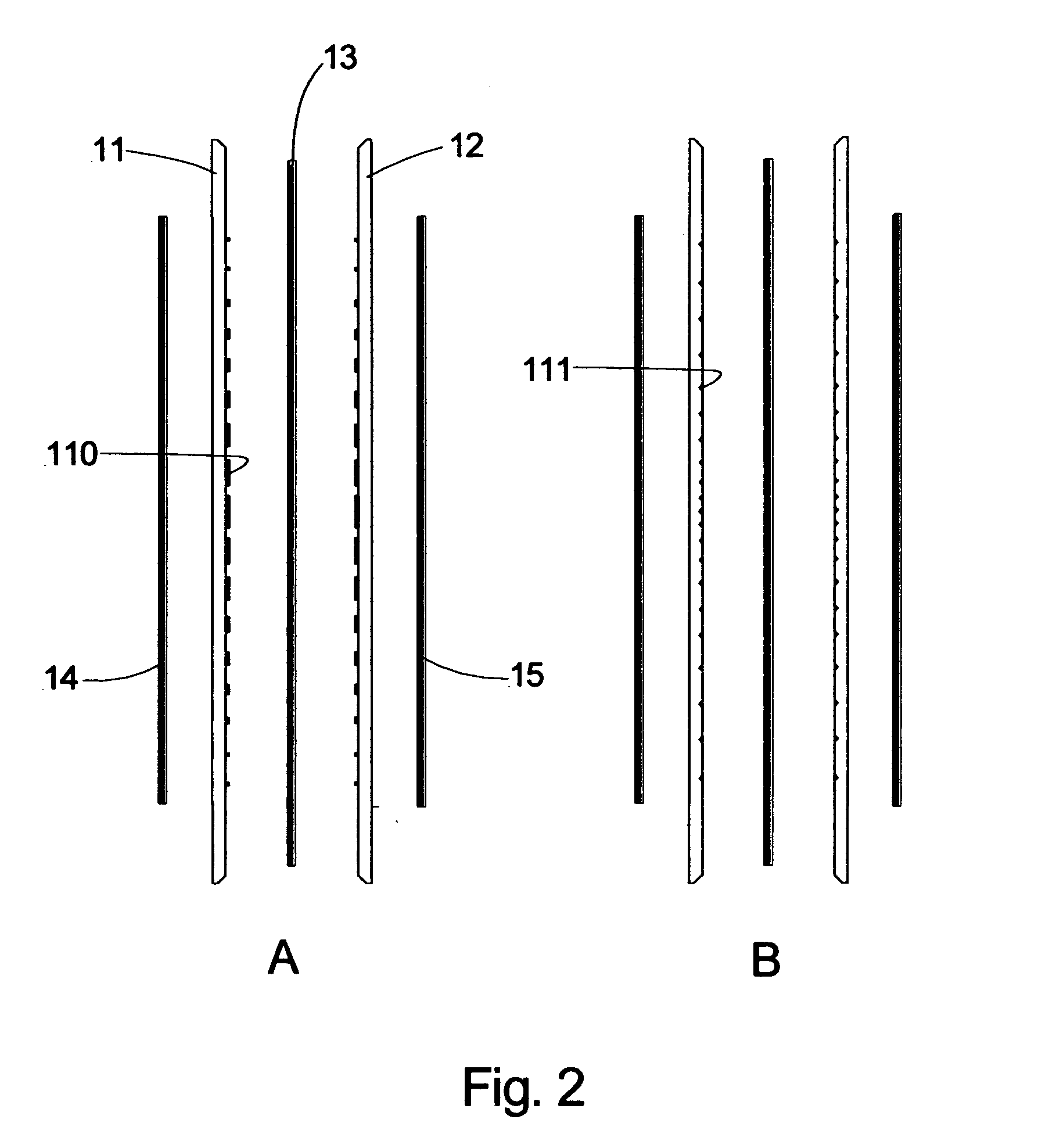Patents
Literature
12067 results about "Printing ink" patented technology
Efficacy Topic
Property
Owner
Technical Advancement
Application Domain
Technology Topic
Technology Field Word
Patent Country/Region
Patent Type
Patent Status
Application Year
Inventor
Ink is a liquid or paste that contains pigments or dyes and is used to color a surface to produce an image, text, or design.Ink is used for drawing or writing with a pen, brush, or quill.Thicker inks, in paste form, are used extensively in letterpress and lithographic printing.. Ink can be a complex medium, composed of solvents, pigments, dyes, resins, lubricants, solubilizers, surfactants ...
Highly catalytic screen-printing ink
ActiveUS7018568B2Easy to produceConductive layers on insulating-supportsConductive materialConductive polymerPrinting ink
The invention is directed to conductive polymer compositions, catalytic ink compositions (e.g., for use in screen-printing), electrodes produced by deposition of an ink composition, methods of making, and methods of using thereof. An exemplary ink material comprises platinum black and / or platinum-on-carbon as the catalyst, graphite as a conducting material, a polymer binding material, and an organic solvent. The polymer binding material is typically a copolymer of hydrophilic and hydrophobic monomers. The conductive polymer compositions of the present invention can be used, for example, to make electrochemical sensors. Such sensors can be used in a variety of analyte monitoring devices to monitor analyte amount or concentrations in subjects, for example, glucose monitoring devices to monitor glucose levels in subjects with diabetes.
Owner:LIFESCAN IP HLDG LLC +1
Novel radiation curable compositions
Radiation curable compositions with a polymeric co-initiator are disclosed comprising a dendritic polymer core with at least one co-initiating functional group as an end group. The dendritic polymeric core is preferably a hyperbranched polymer. Industrial applications include varnishes, lacquers and printing inks. The polymeric co-initiator is especially useful in radiation curable inkjet ink.
Owner:AGFA NV
Electro-optic media produced using ink jet printing
ActiveUS7952790B2Precise alignmentExtension of timeStatic indicating devicesNon-linear opticsElectrical conductorElectrophoresis
Ink jet printing can be used in the production of electro-optic displays for (a) forming a layer of a polymer-dispersed electrophoretic medium on a substrate; (b) forming a color electro-optic layer; (c) forming a color filter; and (d) printing electrodes and / or associated conductors on a layer of electro-optic material.
Owner:E INK CORPORATION
Ink to ink bleed and halo control using specific polymers in ink-jet printing inks
InactiveUS6281267B2Reduce bleedingReduce haloDuplicating/marking methodsInksPH-sensitive polymersPrinting ink
The ink set of this invention comprises at least two inks, one of which contains a pH sensitive polymer and preferably a self-dispersing pigment colorant. A second ink is provided which comprises incompatible inorganic or organic salts or has an appropriate pH. The polymer precipitates onto a medium upon contact with the second ink, thereby providing improved bleed and halo control.
Owner:HEWLETT PACKARD DEV CO LP
Portable hand held camera
InactiveUS7453492B2Increasing of apparent resolutionImprove graphicsTelevision system detailsInking apparatusPrint mediaHand held
A camera system comprising:at least one area image sensor for imaging a scene;a camera processor means for processing said image scene in accordance with a predetermined scene transformation requirement; anda printer for printing out said processed image scene on print media, utilizing printing ink stored in a single detachable module inside said camera system;said camera system comprising a portable hand held unit for the imaging of scenes by said area image sensor and printing said scenes directly out of said camera system via said printer.
Owner:GOOGLE LLC
Electro-optic media produced using ink jet printing
ActiveUS20070223079A1Extended production timeDecrease cost timeNon-linear opticsOptical elementsElectrical conductorElectrophoresis
Ink jet printing can be used in the production of electro-optic displays for (a) forming a layer of a polymer-dispersed electrophoretic medium on a substrate; (b) forming a color electro-optic layer; (c) forming a color filter; and (d) printing electrodes and / or associated conductors on a layer of electro-optic material.
Owner:E INK CORPORATION
Method and system for multi-channel ink-jet printing
A printing apparatus having an array of printheads arranged along a single printhead axis, and capable of printing images and a coating layer on the substrate during a single printing operation. The coating layer can comprise a specialized printing fluid such as a layer of substantially white ink. The apparatus can perform a pre-coat printing operation, in which the coating layer is deposited first on the substrate, and the image is then printed over the coating layer. The apparatus can also perform a post-coat printing operation, in which the image is first printed onto the substrate, and the coating layer is then deposited over the image. The printhead array includes at least one printhead for printing inks to form the images, and at least one printhead for printing a specialized fluid to form the coating layer. Depending on the printing mode, a controller allocates certain nozzles of the array for printing inks and certain nozzles for printing the specialized fluid. As each section of a substrate advances under the array, it first receives a coating layer, and then an image layer; or it first receives an image layer and then a coating layer. The invention is particularly advantageous for printing on non-white and transparent substrates, as well as for printing backlit signs.
Owner:ELECTRONICS FOR IMAGING INC
Smooth finish UV ink system and method
InactiveUS20060075917A1Improve surface smoothnessReduced drop spreadDuplicating/marking methodsOther printing apparatusEngineeringPrinting ink
A printing method includes steps of applying an ink-receptive coating to a substrate; printing an actinic radiation-curable ink jet ink over the coating; and curing the printed ink jet ink. An article printed by the method has a ink-receptive coating layer with a cured print. An apparatus for carrying out the method includes a coating station at which the ink-receptive coating is applied to a substrate, an ink jet printhead at which the energy-curable ink jet ink is applied, and a source of actinic radiation for curing the applied ink. The ink may be applied in sufficient amount to achieve a color density comparable to that obtained using other printing processes such as flexographic or gravure printing processes. The ink-receptive coating layer may be of a thickness sufficient to provide improve surface smoothness and / or reduced drop spread relative to an uncoated substrate.
Owner:ELECTRONICS FOR IMAGING
Apparatus and method for improving gas flow uniformity in a continuous stream ink jet printer
InactiveUS6866370B2Improve printing qualityImproves airflow uniformityInking apparatusProcess engineeringPrinting ink
A method of enhancing print quality of a continuous ink jet printing device and such a printing device in which selected droplets in a stream of droplets are selectively deflected to impinge on a print medium, the method including the steps of providing a plurality of ink droplets, each printing ink-droplet being substantially same size, providing a gas flow that deflects the plurality of ink droplets, monitoring uniformity of the gas flow, and adjusting a flow characteristic of the gas flow based on the monitored uniformity. The step of adjusting flow characteristic of the gas flow is attained by changing flow rate of the gas flow or flow area of the outlet. In one embodiment, the step of monitoring uniformity of gas flow includes monitoring trajectory paths of the deflected plurality of ink droplets.
Owner:EASTMAN KODAK CO
Ink-jet printing ink compositions having superior smear-fastness
InactiveUS6417249B1Improve printing effectGood printing performanceInksCoatingsPolyesterPolymer science
Specific core-shell binders and additives for use in ink-jet printing ink compositions are provided. One class of specific core / shell binders has the general formula [AmBnC'p]x, where A and B are hydrophobic components in which A exhibits a glass transition temperature Tg between about -150° and +25° C. and B exhibits a glass transition temperature greater than 25° C., C' is a component that forms a hydrophilic or water-soluble component in the polymer chain, and has an ionic or non-ionic structure, m<30 wt %, n>40 wt %, and p<30 wt %, with the total of m+n+p=100 wt %, and x=1 to 100,000. The molecular weight (weight average) of the polymer is between about 1,000 and 2,000,000. The polymers useful in the practice of the invention are prepared by emulsifying the monomers and then conducting a free-radical polymerization in water. The foregoing binder polymer is used in conjunction with additives comprising either (a) amine alcohols having the general formulawhere R1 and R2 are independently selected from the group consisting of hydrogen, alkyl, alkoxy, aryl, and phenoxy, R is alkyl, X is selected from the group consisting of hydrogen, alkyl, aryl, -OH, -COOH, -CHO, and substituted groups or (b) organic acids (water-soluble or water-dispersive), including polymeric acids. Other additives include amines, polyalcohols, polyamines, and polyesters. In the ink compositions of the present invention, the ratio of binder (1) to colorant (pigment) is greater than 1 to 10. The concentration of the additive is within the range of 0.005 to 50 wt %. The general ink formulation comprises: 5 to 50 wt % water-miscible solvent; 0.5 to 10 wt % colorant; 0.005 to 50 wt % additive; and water.
Owner:HEWLETT PACKARD DEV CO LP
Inkjet printing ink
ActiveUS20120306976A1Quality improvementLow viscosityMeasurement apparatus componentsDuplicating/marking methodsFiberEmulsion
An inkjet printing ink having properties of crosslinking and being fixed on a fiber by heating, characterized in that in an ink composition consisting of (A) a pigment dispersion having a mean particle diameter of 200 nm or less and a maximum particle diameter of 500 nm or less, consisting of a pigment, a water-soluble pigment dispersant and a hydrophilic solvent, (B) a water-soluble fixing agent, and (C) a crosslinking agent, the water-soluble pigment dispersant in (A) is a specific emulsion polymer neutralized by a basic substance; the water-soluble fixing agent (B) is the one having a crosslinking functional group; and the crosslinking agent (C) is the one having a functional group that crosslinks the crosslinking functional group of the water-soluble pigment dispersant in (A) with the crosslinking functional group of the water-soluble fixing agent (B) at a temperature of 100° C. or more.
Owner:MATSUI SHIKISO KAGAKU INDSHO
Low VOC web offset heatset inks
InactiveUS7018453B2Increasing drying and setting speedImprove stabilityInksEmulsion paintsPlasticizerPrinting ink
A web offset heatset printing ink composition having less than about 2 wt. % of volatile organic compounds containing an aqueous polymer latex dispersed in an ink base of a resin, a non-volatile plasticizer, and a pigment and method for preparing same.
Owner:SUN CHEM CORP
Ink Circulation System For Inkjet Printing
An ink circulation system for use in an inkjet printing apparatus includes an inkjet printhead, a supply subtank for containing a supply of ink for the inkjet printhead and a return subtank for containing a surplus of ink not used by the inkjet printhead. The supply subtank is coupled with the return subtank and with the inkjet printhead via a first fluid path. A second fluid path couples the return subtank with the supply subtank for circulating the ink from the return subtank back to the supply subtank. This way a closed ink circulation path is realized. The ink flow from the supply subtank to the inkjet printhead and to the return subtank is controlled by means of a pressure difference between the ink in the supply subtank and the ink in the return subtank. A back pressure at the nozzle of the inkjet printhead is established via active pressure control means.
Owner:AGFA NV
Organopolysiloxanes for defoaming aqueous systems
InactiveUS6858663B2Improve balanceRapid foam collapseGroup 4/14 element organic compoundsOther chemical processesWater insolublePrinting ink
The invention relates to the use of water-insoluble organopolysiloxane derivatives of the general formula (I) in which the radicalsR1 are alkyl radicals, preferably having 1 to 4 carbon atoms or aryl radicals, but at least 80% of the radicals R1 are methyl radicals, andR2 at least once in the molecule has the definition (a) for defoaming aqueous media, especially printing inks and paints.
Owner:EVONIK DEGUSSA GMBH
Ink-jet printing ink compositions having magnetic properties and specific core/shell binder
InactiveUS6248805B1Improve propertiesImprove magnetic propertiesIron oxides/hydroxidesDuplicating/marking methodsCharge-transfer complexPrinting ink
Specific core-shell binders and magnetic additives for use in ink-jet printing ink compositions are provided. One class of specific core / shell binders has the general formula [AmBnC'p]x, where A and B are hydrophobic components in which A exhibits a glass transition temperature Tg between about -150° and +25° C. and B exhibits a glass transition temperature greater than 25° C., C' is a component that forms hydrophilic or water-soluble component in the polymer chain, and has an ionic or non-ionic structure, m<30 wt %, n>40 wt %, and p<30 wt %, with the total of m+n+p=100 wt %, and x=1 to 100,000. The molecular weight (weight average) of the polymer is between about 1,000 and 2,000,000. The polymers useful in the practice of the invention are prepared by emulsifying the monomers and then conducting a free-radical polymerization in water. The foregoing binder polymer is used in conjunction with magnetic additives comprising either (a) inorganic magnetic compound containing at least one of iron, cobalt, and nickel or (b) organic magnetic complexes containing at least one of iron, cobalt, and nickel or (c) organic charge transfer complexes that exhibit magnetic properties. The ratio of binder (I) to colorant (pigment) is greater that 1 to 10. The concentration of the magnetice additive is within the range of 1 to 30 wt %. The general ink formulation comprises: 5 to 50 wt % water-miscible solvent; 0.5 to 10 wt % colorant; 1 to 30 wt % magnetice additive; and water.
Owner:HEWLETT PACKARD DEV CO LP
Strip electrode with conductive nano tube printing
InactiveUS20050186333A1Accurate electronic readoutMinimizing strip to strip variationImmobilised enzymesBioreactor/fermenter combinationsSilver inkCarbon nanotube
A sensor system that detects a current representative of a compound in a liquid mixture features a multi or three electrode strip adapted for releasable attachment to signal readout circuitry. The strip comprises an elongated support which is preferably flat adapted for releasable attachment to the readout circuitry; a first conductor and a second and a third conductor each extend along the support and comprise means for connection to the circuitry. The circuit is formed with single-walled or multi walled nanotubes conductive traces and may be formed from multiple layers or dispersions containing, carbon nanotubes, carbon nanotubes / antimony tin oxide, carbon nanotubes / platinum, or carbon nanotubes / silver or carbon nanotubes / silver-cloride. An active electrode formed from a separate conductive carbon nanotubes layer or suitable dispersion, positioned to contact the liquid mixture and the first conductor, comprises a deposit of an enzyme capable of catalyzing a reaction involving the compound and preferably an electron mediator, capable of transferring electrons between the enzyme-catalyzed reaction and the first conductor. A reference electrode also formed from a conductive carbon nanotube layer or suitable dispersion is positioned to contact the mixture and the second conductor. The system includes circuitry adapted to provide an electrical signal representative of the current which is formed from printing conductive inks made with nano size particles such as conductive carbon or carbon / platinum or carbon / silver, or carbon nanotubes / antimony tin oxide to form a conductive carbon nanotube layers. The multiple-electrode strip is manufactured, by then applying the enzyme and preferably the mediator onto the electrode. Alternatively the electrode can have a carbon nanotubes / antimony tin oxide, carbon nanotubes / platinum, or carbon nanotubes / silver or carbon nanotubes / silver-cloride surface and or a conductive carbon or silver ink surface connecting leg. The carbon nanotube solution is first coated and patterned into electro shapes and the conductive carbon nanotubes, carbon or silver ink can be attached by printing the ink to interface with the carbon nanotube electro surface. A platinum electrode test strip is also disclosed that is formed from either nano platinum distributed in the carbon nanotube layer or by application or incorporation of platinum to the carbon nanotube conductive ink.
Owner:DOUGLAS JOEL S MR
Printing ink cleaning agent
An ink cleaner consists of fatty acid monoalkyl ester, water, a water soluble nonionic surfactant, an anion active agent and a cosurfactant. The ink cleaner provided by the invention has the advantages of simple preparation, stable latex, strong cleansing power and the like and is especially applicable to cleaning printing ink.
Owner:CHINA PETROLEUM & CHEM CORP +1
Method of drying printed material and apparatus therefor
InactiveUS20100192402A1Avoid stickingFast dryingDrying solid materials with heatDrying gas arrangementsFiberNano size
To carry out drying of printing ink with the use of Nano sized high-temperature dryness steam. Nano sized high-temperature dryness steam being clustered on Nano oder is generated and jetted to the print side of printed material so that the Nano sized high-temperature dryness steam imparts intramolecular vibrational energy to ink of the print side. Consequently, the Nano sized high-temperature dryness steam being clustered on Nano oder not only passes through fiber pores in the printed material but also collides with the ink of the print side. The Nano sized high-temperature dryness steam having collided with the ink of the print side imparts thermally excited energy as intramolecular vibrational energy to the ink containing polar molecules. The ink is dried by the intramolecular energy.
Owner:DAIDO SANGYO
Polymeric dispersant
Owner:SUN CHEM CORP
Water-based intaglio ink equal to plate engraving ink and uses thereof
ActiveCN101284965AOptimizing physical fastnessNo pollutionInksOther printing apparatusScreen printingSolubility
The invention is equivalent to water soluble intaglio ink of plate engraving ink and / or equivalent to water-soluble screen printing ink of the ink, suitable for a gravure printing machine. The ink has the advantages of nontoxicity, tastelessness, nonflammable property, water solubility, non-environmental pollution and rapid drying; the printing effect of the obtained presswork is the same as or equivalent to the printing effect of the plate engraving presswork; the materialized firmness of the presswork is superior to the materialized firmness of the plate engraving presswork; the ink is low in printing cost and suitable for printing secure and confidential documents with deep printing lines, such as bank notes, securities, stamps, food packing, etc.
Owner:北京万垟防伪技术有限责任公司 +2
Lithographic printing plate precursor and lithographic printing method
ActiveUS20050069811A1Excellent developabilityProlong lifeRadiation applicationsSemiconductor/solid-state device manufacturingActinic RaysImage recording
A lithographic printing plate precursor comprising: a support; an image recording layer comprising (A) an actinic ray absorber, (B) a polymerization initiator, and (C) a polymerizable compound, wherein the image recording layer is capable of being removed with at least one of a printing ink and a fountain solution; and an overcoat layer comprising an inorganic laminar compound. And a lithographic printing method comprising: mounting a lithographic printing plate precursor on a printing press; imagewise exposing the lithographic printing plate precursor with laser beams; and feeding at least one of a printing ink and a fountain solution to the lithographic printing plate precursor to remove a laser beams non-exposed area in an image recording layer; and performing printing.
Owner:FUJIFILM CORP
Conductive graphene carbon slurry printing ink and preparation method thereof
The invention discloses a conductive graphene carbon slurry printing ink and a preparation method thereof; the printing ink comprises a conductive function unit containing graphene, solvent, auxiliary agent and resin bridging agent; the components comprise 10-70 parts of conductive units by weight, 10-90 parts of solvent by weight, 0.1-30 parts of auxiliary agent by weight, and 0-70 parts of resin bridging agent by weight. The preparation method comprises the preparation of conductive unit dispersion liquid and the preparation of conductive slurry. The preparation method of the conductive graphene carbon slurry printing ink is simple in method; compared with the conventional carbon slurry, the conductive graphene carbon slurry printing ink is high in conductivity, thin, uniform and smooth in printing film, excellent in performance, and is suitable for many printing technology and base materials.
Owner:JIANGSU GEMEIGAO DEV CO LTD +1
Electrode for secondary battery, manufacturing method thereof and secondary battery employing the same
InactiveUS20090098457A1Improve thickness uniformityIncrease electrode capacityCylinder pressesPlaten pressesElectrical batterySurface roughness
Provided are an electrode for a secondary battery employing an active material layer having improved thickness uniformity by printing low-viscosity ink on the active material layer, a manufacturing method of the electrode, and a secondary battery having improved electrode capacity due to the employing of the electrode. The electrode includes a current collector, and an active material layer formed by printing ink having a viscosity not exceeding 500 mPa·s on the current collector and drying the current collector, wherein the current collector has a surface roughness (Ra) in a range from about 0.025 to 1.0 μm.
Owner:SAMSUNG ELECTRONICS CO LTD
Polymeric dispersant
Owner:SUN CHEM CORP
Ultraviolet light curing printing ink for digital printing and dyeing preparation thereof
UV solidified printing ink for digital code printing and dyeing is composed of polyurethane acrylate, prepolymer, activity monomer, dyestuff, light initiator, dispersant agent and other addition agents. The prepolymer has the character of low viscosity and good flexibility. The ink doesn't contain organic solvent and has wide material adaptation, storage stability and softness.
Owner:DONGHUA UNIV
Ink-jet recording medium with an opaque or semi-opaque layer coated thereon, method for recording an image, and a recorded medium with at least one layer rendered clear or semi-opaque
InactiveUS20040109958A1Extended drying timeAvoid excessive adhesionLayered productsCoatingsAziridineCross linker
The present invention features a multi-layer ink-jet recording medium, suitable for recording images with dye and pigmented inks and thereby providing light-emitting, reflective, glossy, metallic-looking or holographic images, comprising a substrate coated with at least two layers comprising: (a) a first transparent ink-receptive layer comprising a polymeric binder and a cross-linker and optionally having a plasticizer and pigment particles such as alumina and silica coated over the substrate, wherein the cross-linker comprises and azetidinium polymer or a salt thereof, and / or a polyfunctinal aziridine or a salt thereof or a polyfunctional oxazoline or a salt thereof; and (b) a second ink-receptive layer comprising an opaque or semi-opaque coating composition, wherein the opaque or semi-opaque coating composition is capable of accepting a printed image and thereby becoming semi transparent or clearly transparent from application of ink-jet printing ink or similar inks, while presenting a light-emitting, reflective, glossy, metallic-looking or holographic image of high clarity and quality, wherein said first layer is located between said second layer and the substrate in said recording medium and the first and second layers are chemically coupled.
Owner:PIXTERRA
Blanket cylinder with integrated compressible layer
A printing unit including a rigid cylinder rotatable about an axis of rotation, a plurality of inflatable bladders disposed on a circumferential surface of the cylinder, and a first fluid supply regulation unit configured to supply a first fluid to a first set of inflatable bladders of the plurality of inflatable bladders and to regulate a first fluid pressure inside the first set inflatable bladders. In addition, a method for mounting a sleeve-shaped printing sock onto a blanket cylinder of an offset printing press, in which a set of inflatable bladders disposed at an outer region of the blanket cylinder are at least partially deflated. The sleeve-shaped printing sock is slid over one end of the blanket cylinder so that the printing sock at least partially surrounds a circumference of the blanket cylinder. The set of inflatable bladders are then inflated so that the printing sock fits tightly around the circumference of the blanket cylinder.
Owner:SHANGHAI ELECTRICGROUP CORP
Method for forming electrode for flat panel display
InactiveUS20040043691A1Improve liquidityMaintain good propertiesTelevision system detailsMaterial nanotechnologyElectrical polarityDisplay device
The present invention provides a method for forming an electrode of a flat panel display device using ink for ink jet printing and an ink jet printer. The ink for ink jet printing is prepared by a method comprising the first step of contacting the vapor of a metal with the vapor of the first solvent, according to the vapor phase-evaporation technique, to thus give a dispersion of metal ultrafine particles; the second step of adding a low molecular weight polar solvent as the second solvent to the dispersion prepared in the first step to thus precipitate the metal ultrafine particles and removing the first solvent; and the third step of adding the third solvent to the precipitates thus prepared to carry out the solvent substitution and to give a dispersion of independently dispersed metal ultrafine particles, and prepared by adding a dispersant in or during the foregoing first and / or third steps, and the ink for ink jet printing consists of a dispersion excellent in ink characteristic properties. In the dispersion, metal ultrafine particles having a particle size of not more than 100 nm are independently and uniformly dispersed. The electrodes of FPD devices are formed using this ink for ink jet printing.
Owner:ULVAC INC
Block-copolymeric polyalkylene oxides containing styrene oxide, obtained by alkoxylation, and their use
InactiveUS6552091B1High pigment affinityTrend downPigmenting treatmentOrganic chemistryStyrene oxidePrinting ink
Owner:EVONIK DEGUSSA GMBH
Panel light source for back-lit signs
InactiveUS20080285274A1Easy to installEasy maintenanceNon-electric lightingPoint-like light sourceGraphicsLight guide
Disclosed herein is an illuminated signboard using a plane light source in which edges of two light guide plates are cut in an inclined form, an opaque plate having high surface reflectivity is inserted between the two light guide plates to optically block the two light guide plates from each other, and the light guide plates and the opaque plate are combined to form a second lighting part. U-shaped frames including LEDs are connected to construct a frame housing and the second lighting part is combined with the frame housing. Light emitted from the LEDs and transmitted in the light guide plates is dispersed by a dispersing mechanism formed on the backsides of the light guide plates using paint, print ink or engraving to transmit the light guide plates and graphics or natural color pictures formed on transparent plates attached to the outer sides of the light guide plates so as to illuminate the graphics or the natural color pictures.
Owner:JUNG HAE RYONG JUNG
Features
- R&D
- Intellectual Property
- Life Sciences
- Materials
- Tech Scout
Why Patsnap Eureka
- Unparalleled Data Quality
- Higher Quality Content
- 60% Fewer Hallucinations
Social media
Patsnap Eureka Blog
Learn More Browse by: Latest US Patents, China's latest patents, Technical Efficacy Thesaurus, Application Domain, Technology Topic, Popular Technical Reports.
© 2025 PatSnap. All rights reserved.Legal|Privacy policy|Modern Slavery Act Transparency Statement|Sitemap|About US| Contact US: help@patsnap.com
